- Flight + Hotel Packages


Advisory on Coronavirus for Travelers to Indonesia
Due to the recent concern regarding the outbreak of COVID-19 in Indonesia, the Government of the Republic of Indonesia would be implementing the following measures in order to minimize the risk of the pandemic from spreading even further:
1| The Government continues to closely follow the WHO situation report on the situation of COVID-19.
2| The Indonesian government has suspended its visa exemption policy for a short-stay visit, visa-on-arrival and diplomatic/service visa-free facilities for all countries, for a period of 1 month.
3| All foreigners/travelers who wish to visit Indonesia must obtain a visa from Indonesian missions in accordance with the purpose of their visit. Upon submission, applicants must provide health certificates issued by relevant health authorities from their respective countries.
Measures for visitors from China remain in effect, in accordance with the Statement of the Minister for Foreign Affairs on 2 February 2020 and the Regulation of the Minister of Law and Human Rights Number 7 of 2020, which includes:
- Direct flights to-and-from Mainland China have been temporarily suspended starting from Wednesday, 5 February 2020 at 00.00hrs.
- All visitors arriving from Mainland China and who have been in China for 14 days will be temporarily banned from entering and transiting in Indonesia.
- The Government will also temporarily halt the issuance of visa-free as well as visa on arrival for Chinese nationals residing in Mainland China.
- Indonesian citizens are advised not to travel to Mainland China during this period.
4| Second, measures for visitors from South Korea, Daegu City, and Gyeongsangbuk-do Province remain in effect, in accordance with the Statement of the Minister for Affairs on 5 March 2020. 5| Third, deny entry or transit to Indonesia for visitors/travelers who have traveled to the following countries, in the last 14 days:
- Switzerland;
- United Kingdom
6| Fourth, all visitors/travelers must complete and submit a Health Alert Card to the Port Health Authority upon arrival at Indonesian airports.
7| Should the travel history indicate that a person has traveled to the countries above in the last 14 days, such a person may be refused entry to Indonesia.
8| The extension of Short Visit Pass for foreign travelers who are currently in Indonesia and have expired shall be conducted in accordance with the Regulation of the Ministry of Justice and Human Rights No. 7 of 2020.
9| The extension of Residence Permit for holders of Temporary Stay Permit Card (KITAS)/ Permanent Stay Permit Card (KITAP) and holders of Diplomatic Visa and Service Visa who are currently overseas and will expire, shall be conducted in accordance with the Regulation of the Ministry of Justice and Human Rights no.7 of 2020.
10| These measures will take effect on Friday 20 March at 00.00 Western Indonesia Time (GMT+7).
Symptoms of COVID-19 may include fever, cough, respiratory problems, sore throat, and fatigue. In this regards, the public is recommended to undertake the following precautions to reduce exposure to-and-transmission of a range of illness, which includes hand and respiratory hygiene, and safe food practices:
- Frequently clean hands by using alcohol-based hand rub or soap and water;
- Wear a mask if you have respiratory symptoms;
- When coughing and sneezing cover your mouth and nose with flexed elbow or tissue (throw the tissue in a closed bin and wash hands) or wear a mask if you have respiratory such as a cough or runny nose;
- Avoid close contact with people who are unwell or showing symptoms of illness;
- avoid direct unprotected contact with live animals and surfaces in contact with animals, as well as consumption of raw and undercooked meat; and
- Seek medical attention if you have a fever, cough, and respiratory problems and share previous travel history with your healthcare provider.
Should you encounter anyone that is experiencing symptoms of coronavirus, you may contact the following numbers:
Hotline Ministry of Health of the Republic of Indonesia (Kemenkes): +62215210411, +62812 12123119
Hotline Ministry of Foreign Affairs of the Republic of Indonesia (Kemlu): +6281290070027.
It is our hope to spread the news that activities and businesses run as usual in Indonesia while we also pray that this outbreak can soon be contained globally. We also encourage everyone to keep fit and upgrade their personal health regimes to increase body immunity and prevent them from being infected with viruses.
The best way to minimize the risk posed by the spread of COVID-19 is to undertake preventive measures . The preventive measures must also be taken by the stakeholders in the tourism and creative economy industry in order to maintain the safety and stability of the public. For more information, click here .
Suggested for you

The Official Statement of The Ministry of Tourism and Creative Economy

Visit our other website
This is the official website of the Ministry of Tourism, Republic of Indonesia. The contents listed on this website are intended for informational purposes rather than commercial. Any displayed sale is meant as a token of partnership and will always redirect you to our partners' sites.
- Ministry of Health
News Highlights
10th Jul 2021
The Multi-Ministry Taskforce has been closely monitoring the global COVID-19 situation and regularly reviews Singapore’s border measures to manage the risk of importation from travellers and onward local transmission, taking into account the current situation in their source countries/ regions.
Tightening of Entry Approvals for Travellers and Transfers from Indonesia
2. Given the worsening situation in Indonesia, we will tighten our border measures for travellers from Indonesia by reducing entry approvals for non-Singapore Citizens/ Permanent Residents with immediate effect . Entry approvals may be considered where additional safe management measures are taken. 3. With effect from 12 July 2021, 2359 hours , all travellers with travel history to Indonesia within the last 21 days will also not be allowed to transit through Singapore.
Updates in Pre-Departure Testing Requirements
4. Currently, all travellers entering Singapore with recent travel history to Indonesia within the last 21 days prior to departure for Singapore will need to present a valid negative COVID-19 polymerase chain reaction (PCR) test taken within 72 hours before departure for Singapore. With effect from 12 July 2021, 2359 hours , such travellers will instead be required to present a valid negative COVID-19 PCR test taken within 48 hours before departure for Singapore. 5. Travellers who arrive in Singapore without a valid negative PCR test result may be denied entry into Singapore. Permanent Residents and long-term pass holders who fail to comply with the new requirements may have their permit or pass cancelled. All travellers will continue to be subjected to: a. 14-day Stay-Home Notice (SHN) at dedicated SHN facilities; b. On-arrival PCR test[1] and PCR test on Day 14 of arrival; and c. On-arrival Antigen Rapid Test (ART)[2] and self-administered ART test on Day 3, 7 and 11 of arrival.
Regular Review of Border Measures 6. As the global situation evolves, we will continue to adjust our border measures to manage the risk of importation and transmission to the community. Any changes to border measures will be updated on the SafeTravel website . Travellers are advised to visit the website to check for the most updated border measures before entering Singapore and be prepared to be subjected to the prevailing border measures upon entry.
MINISTRY OF HEALTH 10 JULY 2021
[1] To expedite the COVID-19 PCR test at the checkpoints, travellers are strongly encouraged to register and pre-pay for their on-arrival COVID-19 PCR test prior to departing for Singapore at https://safetravel.changiairport.com/ (for Changi Airport) and https://t.2c2p.com/express/parkwayshenton (for Tanah Merah Ferry Terminal).
[2] This requirement has been in effect from 6 July 2021, 0001hrs. Additional details on testing requirements are available at https://safetravel.ica.gov.sg/health/covid19-tests/pcrtest .
Category: Highlights Press Releases
You are using an outdated browser. Upgrade your browser today or install Google Chrome Frame to better experience this site.
Indonesia Traveler View
Travel health notices, vaccines and medicines, non-vaccine-preventable diseases, stay healthy and safe.
- Packing List
After Your Trip
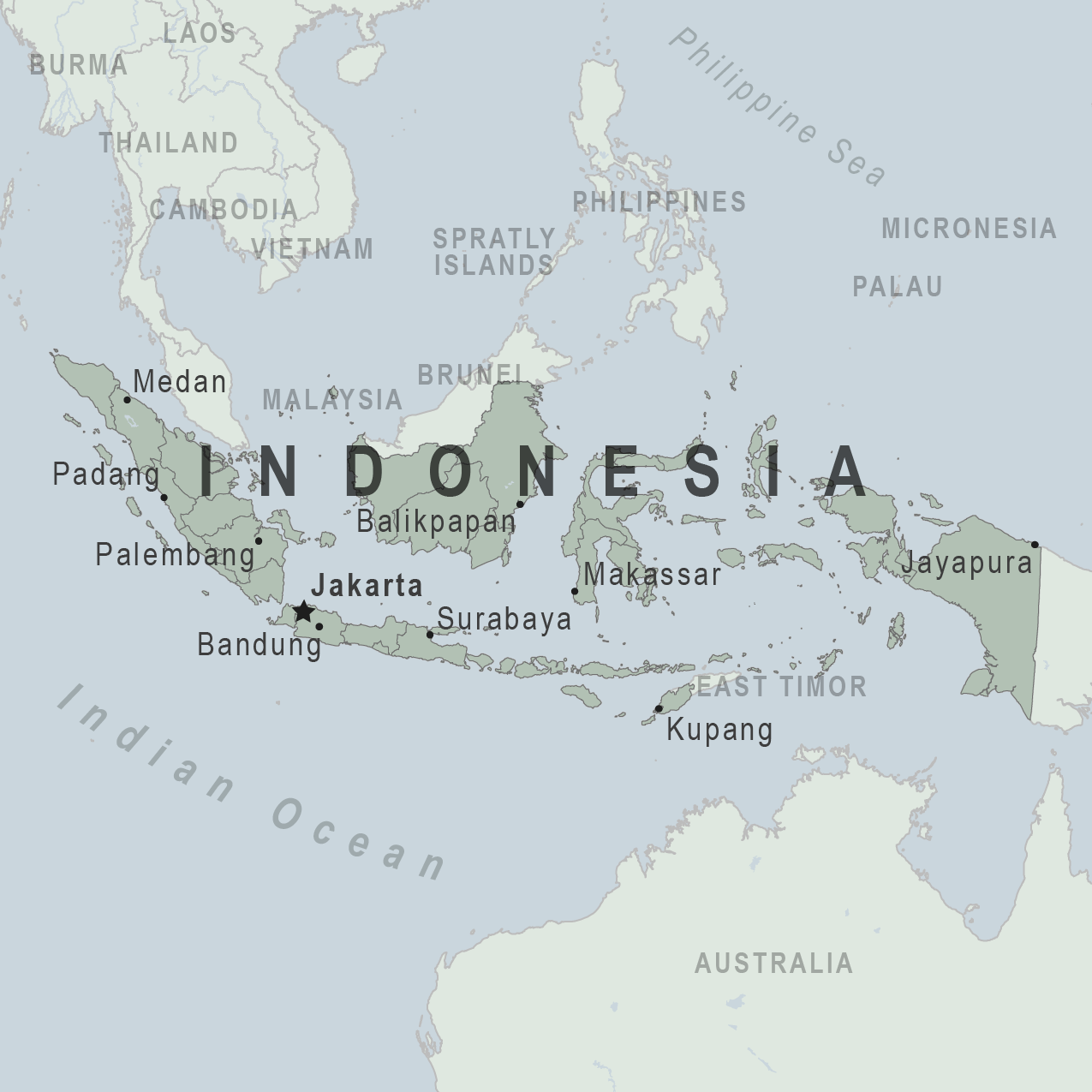
Be aware of current health issues in Indonesia. Learn how to protect yourself.
Level 2 Practice Enhanced Precautions
- Updated Global Polio April 26, 2024 Some international destinations have circulating poliovirus. Before any international travel, make sure you are up to date on your polio vaccines. Destination List: Afghanistan, Algeria, Angola, Benin, Botswana, Burkina Faso, Burundi, Cameroon, Central African Republic, Chad, Côte d'Ivoire (Ivory Coast), Democratic Republic of the Congo, Egypt, Guinea, Indonesia, Kenya, Liberia, Madagascar, Malawi, Mali, Mauritania, Mozambique, Niger, Nigeria, Pakistan, Republic of the Congo, Senegal, Sierra Leone, Somalia, Sudan, Tanzania, including Zanzibar, Yemen, Zambia, Zimbabwe
Level 1 Practice Usual Precautions
- Updated Global Measles April 26, 2024 Many international destinations are reporting increased numbers of cases of measles. Destination List: Afghanistan, Angola, Armenia, Azerbaijan, Benin, Burkina Faso, Burundi, Cameroon, Central African Republic, Chad, Côte d'Ivoire (Ivory Coast), Democratic Republic of the Congo, Djibouti, Equatorial Guinea, Ethiopia, Gabon, Ghana, India, Indonesia, Kazakhstan, Kyrgyzstan, Lebanon, Liberia, Libya, Malaysia, Mauritania, Nepal, Niger, Nigeria, Pakistan, Philippines, Qatar, Republic of South Sudan, Republic of the Congo, Romania, Russia, Senegal, Somalia, Sri Lanka, Sudan, Syria, Tajikistan, Timor-Leste (East Timor), Togo, Turkey, United Arab Emirates, Uzbekistan, Yemen, Zambia
- Dengue in Asia and the Pacific Islands April 18, 2024 Dengue is a risk in many parts of Asia and the Pacific Islands. Some countries are reporting increased numbers of cases of the disease. Travelers to Asia and the Pacific Islands can protect themselves by preventing mosquito bites. Destination List: Cambodia, Indonesia, Laos, Malaysia, Singapore, Sri Lanka
⇧ Top
Check the vaccines and medicines list and visit your doctor at least a month before your trip to get vaccines or medicines you may need. If you or your doctor need help finding a location that provides certain vaccines or medicines, visit the Find a Clinic page.
Routine vaccines
Recommendations.
Make sure you are up-to-date on all routine vaccines before every trip. Some of these vaccines include
- Chickenpox (Varicella)
- Diphtheria-Tetanus-Pertussis
- Flu (influenza)
- Measles-Mumps-Rubella (MMR)
Immunization schedules
All eligible travelers should be up to date with their COVID-19 vaccines. Please see Your COVID-19 Vaccination for more information.
COVID-19 vaccine
Hepatitis A
Recommended for unvaccinated travelers one year old or older going to Indonesia.
Infants 6 to 11 months old should also be vaccinated against Hepatitis A. The dose does not count toward the routine 2-dose series.
Travelers allergic to a vaccine component or who are younger than 6 months should receive a single dose of immune globulin, which provides effective protection for up to 2 months depending on dosage given.
Unvaccinated travelers who are over 40 years old, immunocompromised, or have chronic medical conditions planning to depart to a risk area in less than 2 weeks should get the initial dose of vaccine and at the same appointment receive immune globulin.
Hepatitis A - CDC Yellow Book
Dosing info - Hep A
Hepatitis B
Recommended for unvaccinated travelers of all ages traveling to Indonesia.
Hepatitis B - CDC Yellow Book
Dosing info - Hep B
Japanese Encephalitis
Recommended for travelers who
- Are moving to an area with Japanese encephalitis to live
- Spend long periods of time, such as a month or more, in areas with Japanese encephalitis
- Frequently travel to areas with Japanese encephalitis
Consider vaccination for travelers
- Spending less than a month in areas with Japanese encephalitis but will be doing activities that increase risk of infection, such as visiting rural areas, hiking or camping, or staying in places without air conditioning, screens, or bed nets
- Going to areas with Japanese encephalitis who are uncertain of their activities or how long they will be there
Not recommended for travelers planning short-term travel to urban areas or travel to areas with no clear Japanese encephalitis season.
Japanese encephalitis - CDC Yellow Book
Japanese Encephalitis Vaccine for US Children
CDC recommends that travelers going to certain areas of Indonesia take prescription medicine to prevent malaria. Depending on the medicine you take, you will need to start taking this medicine multiple days before your trip, as well as during and after your trip. Talk to your doctor about which malaria medication you should take.
Find country-specific information about malaria.
Malaria - CDC Yellow Book
Considerations when choosing a drug for malaria prophylaxis (CDC Yellow Book)
Malaria information for Indonesia.
Cases of measles are on the rise worldwide. Travelers are at risk of measles if they have not been fully vaccinated at least two weeks prior to departure, or have not had measles in the past, and travel internationally to areas where measles is spreading.
All international travelers should be fully vaccinated against measles with the measles-mumps-rubella (MMR) vaccine, including an early dose for infants 6–11 months, according to CDC’s measles vaccination recommendations for international travel .
Measles (Rubeola) - CDC Yellow Book
In Indonesia poliovirus has been identified in the past year.
Travelers to Indonesia are at increased risk of exposure to poliovirus.
Vaccine recommendations : Adults traveling to Indonesia who received a complete polio vaccination series as children may receive a single lifetime booster dose of inactivated polio vaccine; travelers who are unvaccinated or not fully vaccinated should receive a complete polio vaccination series before travel. Children who are not fully vaccinated will be considered for an accelerated vaccination schedule .
Polio - CDC Yellow Book
Polio: For Travelers
Rabid dogs are commonly found in Indonesia. If you are bitten or scratched by a dog or other mammal while in Indonesia, there may be limited or no rabies treatment available.
Consider rabies vaccination before your trip if your activities mean you will be around dogs or wildlife.
Travelers more likely to encounter rabid animals include
- Campers, adventure travelers, or cave explorers (spelunkers)
- Veterinarians, animal handlers, field biologists, or laboratory workers handling animal specimens
- Visitors to rural areas
Since children are more likely to be bitten or scratched by a dog or other animals, consider rabies vaccination for children traveling to Indonesia.
Rabies - CDC Yellow Book
Recommended for most travelers, especially those staying with friends or relatives or visiting smaller cities or rural areas.
Typhoid - CDC Yellow Book
Dosing info - Typhoid
Yellow Fever
Required for travelers ≥9 months old arriving from countries with risk for YF virus transmission. 1
Yellow Fever - CDC Yellow Book
- Avoid contaminated water
Leptospirosis
How most people get sick (most common modes of transmission)
- Touching urine or other body fluids from an animal infected with leptospirosis
- Swimming or wading in urine-contaminated fresh water, or contact with urine-contaminated mud
- Drinking water or eating food contaminated with animal urine
- Avoid contaminated water and soil
Clinical Guidance
Schistosomiasis
- Wading, swimming, bathing, or washing in contaminated freshwater streams, rivers, ponds, lakes, or untreated pools.
Avoid bug bites
Chikungunya
- Mosquito bite
- Avoid Bug Bites
- Mosquito bite
- An infected pregnant woman can spread it to her unborn baby
Airborne & droplet
Avian/bird flu.
- Being around, touching, or working with infected poultry, such as visiting poultry farms or live-animal markets
- Avoid domestic and wild poultry
- Breathing in air or accidentally eating food contaminated with the urine, droppings, or saliva of infected rodents
- Bite from an infected rodent
- Less commonly, being around someone sick with hantavirus (only occurs with Andes virus)
- Avoid rodents and areas where they live
- Avoid sick people
Tuberculosis (TB)
- Breathe in TB bacteria that is in the air from an infected and contagious person coughing, speaking, or singing.
Learn actions you can take to stay healthy and safe on your trip. Vaccines cannot protect you from many diseases in Indonesia, so your behaviors are important.
Eat and drink safely
Food and water standards around the world vary based on the destination. Standards may also differ within a country and risk may change depending on activity type (e.g., hiking versus business trip). You can learn more about safe food and drink choices when traveling by accessing the resources below.
- Choose Safe Food and Drinks When Traveling
- Water Treatment Options When Hiking, Camping or Traveling
- Global Water, Sanitation and Hygiene | Healthy Water
- Avoid Contaminated Water During Travel
You can also visit the Department of State Country Information Pages for additional information about food and water safety.
Prevent bug bites
Bugs (like mosquitoes, ticks, and fleas) can spread a number of diseases in Indonesia. Many of these diseases cannot be prevented with a vaccine or medicine. You can reduce your risk by taking steps to prevent bug bites.
What can I do to prevent bug bites?
- Cover exposed skin by wearing long-sleeved shirts, long pants, and hats.
- Use an appropriate insect repellent (see below).
- Use permethrin-treated clothing and gear (such as boots, pants, socks, and tents). Do not use permethrin directly on skin.
- Stay and sleep in air-conditioned or screened rooms.
- Use a bed net if the area where you are sleeping is exposed to the outdoors.
What type of insect repellent should I use?
- FOR PROTECTION AGAINST TICKS AND MOSQUITOES: Use a repellent that contains 20% or more DEET for protection that lasts up to several hours.
- Picaridin (also known as KBR 3023, Bayrepel, and icaridin)
- Oil of lemon eucalyptus (OLE) or para-menthane-diol (PMD)
- 2-undecanone
- Always use insect repellent as directed.
What should I do if I am bitten by bugs?
- Avoid scratching bug bites, and apply hydrocortisone cream or calamine lotion to reduce the itching.
- Check your entire body for ticks after outdoor activity. Be sure to remove ticks properly.
What can I do to avoid bed bugs?
Although bed bugs do not carry disease, they are an annoyance. See our information page about avoiding bug bites for some easy tips to avoid them. For more information on bed bugs, see Bed Bugs .
For more detailed information on avoiding bug bites, see Avoid Bug Bites .
Stay safe outdoors
If your travel plans in Indonesia include outdoor activities, take these steps to stay safe and healthy during your trip.
- Stay alert to changing weather conditions and adjust your plans if conditions become unsafe.
- Prepare for activities by wearing the right clothes and packing protective items, such as bug spray, sunscreen, and a basic first aid kit.
- Consider learning basic first aid and CPR before travel. Bring a travel health kit with items appropriate for your activities.
- If you are outside for many hours in heat, eat salty snacks and drink water to stay hydrated and replace salt lost through sweating.
- Protect yourself from UV radiation : use sunscreen with an SPF of at least 15, wear protective clothing, and seek shade during the hottest time of day (10 a.m.–4 p.m.).
- Be especially careful during summer months and at high elevation. Because sunlight reflects off snow, sand, and water, sun exposure may be increased during activities like skiing, swimming, and sailing.
- Very cold temperatures can be dangerous. Dress in layers and cover heads, hands, and feet properly if you are visiting a cold location.
Stay safe around water
- Swim only in designated swimming areas. Obey lifeguards and warning flags on beaches.
- Practice safe boating—follow all boating safety laws, do not drink alcohol if driving a boat, and always wear a life jacket.
- Do not dive into shallow water.
- Do not swim in freshwater in developing areas or where sanitation is poor.
- Avoid swallowing water when swimming. Untreated water can carry germs that make you sick.
- To prevent infections, wear shoes on beaches where there may be animal waste.
Schistosomiasis, a parasitic infection that can be spread in fresh water, is found in Indonesia. Avoid swimming in fresh, unchlorinated water, such as lakes, ponds, or rivers.
Keep away from animals
Most animals avoid people, but they may attack if they feel threatened, are protecting their young or territory, or if they are injured or ill. Animal bites and scratches can lead to serious diseases such as rabies.
Follow these tips to protect yourself:
- Do not touch or feed any animals you do not know.
- Do not allow animals to lick open wounds, and do not get animal saliva in your eyes or mouth.
- Avoid rodents and their urine and feces.
- Traveling pets should be supervised closely and not allowed to come in contact with local animals.
- If you wake in a room with a bat, seek medical care immediately. Bat bites may be hard to see.
All animals can pose a threat, but be extra careful around dogs, bats, monkeys, sea animals such as jellyfish, and snakes. If you are bitten or scratched by an animal, immediately:
- Wash the wound with soap and clean water.
- Go to a doctor right away.
- Tell your doctor about your injury when you get back to the United States.
Consider buying medical evacuation insurance. Rabies is a deadly disease that must be treated quickly, and treatment may not be available in some countries.
Reduce your exposure to germs
Follow these tips to avoid getting sick or spreading illness to others while traveling:
- Wash your hands often, especially before eating.
- If soap and water aren’t available, clean hands with hand sanitizer (containing at least 60% alcohol).
- Don’t touch your eyes, nose, or mouth. If you need to touch your face, make sure your hands are clean.
- Cover your mouth and nose with a tissue or your sleeve (not your hands) when coughing or sneezing.
- Try to avoid contact with people who are sick.
- If you are sick, stay home or in your hotel room, unless you need medical care.
Avoid sharing body fluids
Diseases can be spread through body fluids, such as saliva, blood, vomit, and semen.
Protect yourself:
- Use latex condoms correctly.
- Do not inject drugs.
- Limit alcohol consumption. People take more risks when intoxicated.
- Do not share needles or any devices that can break the skin. That includes needles for tattoos, piercings, and acupuncture.
- If you receive medical or dental care, make sure the equipment is disinfected or sanitized.
Know how to get medical care while traveling
Plan for how you will get health care during your trip, should the need arise:
- Carry a list of local doctors and hospitals at your destination.
- Review your health insurance plan to determine what medical services it would cover during your trip. Consider purchasing travel health and medical evacuation insurance.
- Carry a card that identifies, in the local language, your blood type, chronic conditions or serious allergies, and the generic names of any medications you take.
- Some prescription drugs may be illegal in other countries. Call Indonesia’s embassy to verify that all of your prescription(s) are legal to bring with you.
- Bring all the medicines (including over-the-counter medicines) you think you might need during your trip, including extra in case of travel delays. Ask your doctor to help you get prescriptions filled early if you need to.
Many foreign hospitals and clinics are accredited by the Joint Commission International. A list of accredited facilities is available at their website ( www.jointcommissioninternational.org ).
In some countries, medicine (prescription and over-the-counter) may be substandard or counterfeit. Bring the medicines you will need from the United States to avoid having to buy them at your destination.
Malaria is a risk in some parts of Indonesia. If you are going to a risk area, fill your malaria prescription before you leave, and take enough with you for the entire length of your trip. Follow your doctor’s instructions for taking the pills; some need to be started before you leave.
Select safe transportation
Motor vehicle crashes are the #1 killer of healthy US citizens in foreign countries.
In many places cars, buses, large trucks, rickshaws, bikes, people on foot, and even animals share the same lanes of traffic, increasing the risk for crashes.
Be smart when you are traveling on foot.
- Use sidewalks and marked crosswalks.
- Pay attention to the traffic around you, especially in crowded areas.
- Remember, people on foot do not always have the right of way in other countries.
Riding/Driving
Choose a safe vehicle.
- Choose official taxis or public transportation, such as trains and buses.
- Ride only in cars that have seatbelts.
- Avoid overcrowded, overloaded, top-heavy buses and minivans.
- Avoid riding on motorcycles or motorbikes, especially motorbike taxis. (Many crashes are caused by inexperienced motorbike drivers.)
- Choose newer vehicles—they may have more safety features, such as airbags, and be more reliable.
- Choose larger vehicles, which may provide more protection in crashes.
Think about the driver.
- Do not drive after drinking alcohol or ride with someone who has been drinking.
- Consider hiring a licensed, trained driver familiar with the area.
- Arrange payment before departing.
Follow basic safety tips.
- Wear a seatbelt at all times.
- Sit in the back seat of cars and taxis.
- When on motorbikes or bicycles, always wear a helmet. (Bring a helmet from home, if needed.)
- Avoid driving at night; street lighting in certain parts of Indonesia may be poor.
- Do not use a cell phone or text while driving (illegal in many countries).
- Travel during daylight hours only, especially in rural areas.
- If you choose to drive a vehicle in Indonesia, learn the local traffic laws and have the proper paperwork.
- Get any driving permits and insurance you may need. Get an International Driving Permit (IDP). Carry the IDP and a US-issued driver's license at all times.
- Check with your auto insurance policy's international coverage, and get more coverage if needed. Make sure you have liability insurance.
- Avoid using local, unscheduled aircraft.
- If possible, fly on larger planes (more than 30 seats); larger airplanes are more likely to have regular safety inspections.
- Try to schedule flights during daylight hours and in good weather.
Medical Evacuation Insurance
If you are seriously injured, emergency care may not be available or may not meet US standards. Trauma care centers are uncommon outside urban areas. Having medical evacuation insurance can be helpful for these reasons.
Helpful Resources
Road Safety Overseas (Information from the US Department of State): Includes tips on driving in other countries, International Driving Permits, auto insurance, and other resources.
The Association for International Road Travel has country-specific Road Travel Reports available for most countries for a minimal fee.
For information traffic safety and road conditions in Indonesia, see Travel and Transportation on US Department of State's country-specific information for Indonesia .
Traffic flows on the left side of the road in Indonesia.
- Always pay close attention to the flow of traffic, especially when crossing the street.
- LOOK RIGHT for approaching traffic.
Maintain personal security
Use the same common sense traveling overseas that you would at home, and always stay alert and aware of your surroundings.
Before you leave
- Research your destination(s), including local laws, customs, and culture.
- Monitor travel advisories and alerts and read travel tips from the US Department of State.
- Enroll in the Smart Traveler Enrollment Program (STEP) .
- Leave a copy of your itinerary, contact information, credit cards, and passport with someone at home.
- Pack as light as possible, and leave at home any item you could not replace.
While at your destination(s)
- Carry contact information for the nearest US embassy or consulate .
- Carry a photocopy of your passport and entry stamp; leave the actual passport securely in your hotel.
- Follow all local laws and social customs.
- Do not wear expensive clothing or jewelry.
- Always keep hotel doors locked, and store valuables in secure areas.
- If possible, choose hotel rooms between the 2nd and 6th floors.
Healthy Travel Packing List
Use the Healthy Travel Packing List for Indonesia for a list of health-related items to consider packing for your trip. Talk to your doctor about which items are most important for you.
Why does CDC recommend packing these health-related items?
It’s best to be prepared to prevent and treat common illnesses and injuries. Some supplies and medicines may be difficult to find at your destination, may have different names, or may have different ingredients than what you normally use.
If you are not feeling well after your trip, you may need to see a doctor. If you need help finding a travel medicine specialist, see Find a Clinic . Be sure to tell your doctor about your travel, including where you went and what you did on your trip. Also tell your doctor if you were bitten or scratched by an animal while traveling.
If your doctor prescribed antimalarial medicine for your trip, keep taking the rest of your pills after you return home. If you stop taking your medicine too soon, you could still get sick.
Malaria is always a serious disease and may be a deadly illness. If you become ill with a fever either while traveling in a malaria-risk area or after you return home (for up to 1 year), you should seek immediate medical attention and should tell the doctor about your travel history.
For more information on what to do if you are sick after your trip, see Getting Sick after Travel .
Map Disclaimer - The boundaries and names shown and the designations used on maps do not imply the expression of any opinion whatsoever on the part of the Centers for Disease Control and Prevention concerning the legal status of any country, territory, city or area or of its authorities, or concerning the delimitation of its frontiers or boundaries. Approximate border lines for which there may not yet be full agreement are generally marked.
Other Destinations
If you need help finding travel information:
Message & data rates may apply. CDC Privacy Policy
File Formats Help:
- Adobe PDF file
- Microsoft PowerPoint file
- Microsoft Word file
- Microsoft Excel file
- Audio/Video file
- Apple Quicktime file
- RealPlayer file
- Zip Archive file
Exit Notification / Disclaimer Policy
- The Centers for Disease Control and Prevention (CDC) cannot attest to the accuracy of a non-federal website.
- Linking to a non-federal website does not constitute an endorsement by CDC or any of its employees of the sponsors or the information and products presented on the website.
- You will be subject to the destination website's privacy policy when you follow the link.
- CDC is not responsible for Section 508 compliance (accessibility) on other federal or private website.
Travelnurin
Indonesia Travel Advisory For Singapore: Important Info
Afif Muntakli
December 3, 2023
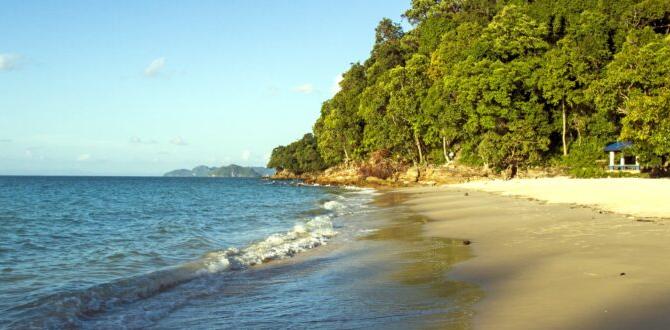
Greetings readers! Today, I will provide you with important information regarding the travel advisory for Singaporean citizens in Indonesia. As a seasoned traveler and avid researcher, I understand the importance of staying updated on the current situation in the country you plan to visit. By following the guidelines and precautions mentioned in this article, you will be well-prepared for your trip to Indonesia.
Current Situation in Indonesia
Before embarking on your journey, it is crucial to be aware of the current situation in Indonesia. This beautiful country with its diverse culture and stunning landscapes has unfortunately been facing challenges such as the COVID-19 outbreak, travel warnings in certain areas, and other safety concerns.
COVID-19 Outbreak
Like many other countries, Indonesia has been impacted by the COVID-19 pandemic. Travelers must be aware of the safety measures and precautions in place to protect themselves and others during their visit. It is essential to stay updated on the latest news and guidelines provided by health authorities.
Travel Advisories for Singaporean Citizens
If you are a Singaporean citizen planning to visit Indonesia, it is vital to be familiar with the travel advisories issued by the Singaporean government. These advisories provide valuable information regarding safety, security, and health concerns in Indonesia.
General Travel Advisory
The Singaporean government regularly updates its general travel advisory for all destinations, including Indonesia. This advisory will highlight any significant risks, safety precautions, and recommended actions for travelers.
Health and Safety Precautions
One of the key aspects of any travel advisory is the recommended health and safety precautions. It is important to follow these guidelines to minimize the risk of illness, accidents, or other untoward incidents during your trip.
Key Travel Restrictions and Requirements
Before traveling to Indonesia, Singaporean citizens must have a clear understanding of the travel restrictions and requirements in place. This will ensure a smooth and hassle-free journey.
Entry Restrictions for Singaporean Citizens
Indonesia may impose certain entry restrictions on Singaporean citizens, which may include visa requirements, validity of passports, and purpose of visit. It is crucial to check the current entry requirements before planning your trip to avoid any complications.
Quarantine and Testing Requirements
Considering the ongoing COVID-19 pandemic, Indonesian authorities may require Singaporean citizens to undergo quarantine or provide proof of negative COVID-19 test results upon entry. Familiarize yourself with the specific requirements and plan accordingly.
Areas with Travel Warnings
Various areas in Indonesia may hold travel warnings due to safety concerns. Singaporean citizens should pay attention to these warnings to ensure their personal well-being and avoid unnecessary risks.
Areas with High Crime Rates
Some regions in Indonesia, especially urban areas and tourist hotspots, may have a higher crime rate. It is essential to be cautious and take necessary precautions, such as avoiding dark or isolated areas, keeping personal belongings safe, and staying vigilant at all times.
Areas with Political Unrest
Certain regions in Indonesia may experience political unrest, demonstrations, or protests. It is advisable to avoid participating in such events and stay updated on the local news to ensure your safety and well-being.
Areas with Natural Disasters
Indonesia is prone to natural disasters, including earthquakes, volcanic eruptions, and tsunamis. Research and stay informed about the regions you plan to visit, follow any evacuation instructions, and have an emergency plan in place.
Emergency Contact Information
It is crucial to have access to emergency contact information while in Indonesia. As a Singaporean citizen, knowing the details of the Singaporean embassy in Indonesia and local emergency hotlines will provide you with a sense of security during your trip.
Singaporean Embassy in Indonesia
The Singaporean embassy in Indonesia is a valuable resource for Singaporean citizens in need of assistance. Keep their contact information handy in case of any emergencies or if you require consular services.
Emergency Hotline Numbers
Familiarize yourself with the local emergency hotline numbers in Indonesia. By knowing these numbers, you can quickly reach out for help in case of any emergency situations.
Travel Insurance and Medical Assistance
Prioritizing your well-being is essential while traveling. Obtaining travel insurance and knowing how to access medical assistance can provide peace of mind during your trip to Indonesia.
Importance of Travel Insurance
Travel insurance is crucial for any traveler, as it offers financial protection in case of unforeseen incidents such as medical emergencies, trip cancellations, or lost luggage. Ensure you have adequate travel insurance coverage before your trip.
Locating Medical Facilities
In the event of a medical emergency, knowing the location of nearby medical facilities is vital. Research and take note of hospitals, clinics, and emergency medical services in the areas you plan to visit in Indonesia.
Cultural and Local Customs
Respecting the local culture and customs is crucial as you travel to Indonesia. Understanding the dress code, behavior expectations, and respecting religious and cultural practices will help you have a more enriching and respectful experience.
Dress Code and Behavior
Indonesia is a predominantly Muslim country, and it is important to dress modestly and respectfully, particularly when visiting religious sites or rural areas. Be mindful of local customs and traditions, and always be courteous and considerate towards the local community.
Respect for Religious and Cultural Practices
Indonesia is a culturally diverse country, and each region may have its own unique customs and practices. Respect and tolerance towards these beliefs are essential. It is advisable to educate yourself about local customs to avoid unintentional disrespect.
Transportation and Accommodation Recommendations
Choosing safe modes of transportation and selecting suitable accommodations are crucial for a smooth and secure journey in Indonesia.
Safe Modes of Transportation
When exploring Indonesia, opt for reliable and reputable transportation options such as licensed taxis or ride-sharing services. If you are planning to rent a vehicle, ensure that you are familiar with local traffic rules and regulations.
Recommended Accommodations
Choosing accommodations with good safety standards and positive reviews is crucial for a comfortable stay. Research and book reputable hotels or guesthouses that prioritize security and have good customer feedback.
Additional Resources for Travel Advisories
The Singaporean government provides various resources to help Singaporean citizens stay informed about travel advisories and safety guidelines for Indonesia.
Government Websites for Travel Information
The Ministry of Foreign Affairs and relevant government agencies in Singapore regularly update their websites with specific travel advisories and essential information for citizens planning to visit Indonesia. Make sure to visit these official websites for the most accurate and up-to-date information.
Travel Advisory Apps and Websites
Utilize travel advisory apps and websites that offer real-time updates on safety concerns, health advisories, and travel restrictions. These platforms can provide valuable insights and recommendations for a safe and enjoyable trip.
Keeping yourself well-informed about the travel advisory for Singaporean citizens in Indonesia is essential to ensure your safety and enhance your travel experience. By staying updated on the current situation, understanding the travel restrictions and requirements, and respecting local customs, you can enjoy a memorable and secure trip to Indonesia. Safe travels!
Frequently Asked Questions:
Q1: Is it safe for Singaporean citizens to travel to Indonesia right now?
A1: Travelers should stay updated on the current travel advisories and the COVID-19 situation in Indonesia. By following the recommended safety measures and precautions, one can have a relatively safe trip.
Q2: Can I visit areas with travel warnings?
A2: While it is generally advisable to avoid areas with travel warnings, it ultimately depends on the severity of the warning and the individual’s willingness to assume the associated risks. Exercise caution and make informed decisions before visiting such areas.
Q3: What should I do in case of a medical emergency in Indonesia?
A3: Keep a list of nearby medical facilities and emergency hotlines. If you have travel insurance, contact your insurance provider for assistance and guidance. Seek immediate medical attention if required.
Q4: How can I respect the local culture and customs in Indonesia?
A4: Dress modestly, particularly when visiting religious sites or rural areas, and be aware of local customs and traditions. Practice tolerance and respect towards religious and cultural practices.
Q5: Are there any reliable apps or websites for travel advisories?
A5: Various travel advisory apps and websites provide real-time information on safety concerns, health advisories, and travel restrictions. Some reputable ones include travel.state.gov and smartraveller.gov.au.
Leave a Comment Cancel reply
Save my name, email, and website in this browser for the next time I comment.
most recent

Essential Travel Medicine In Indonesia: Tips And Guidelines
Discover banda aceh tourism: unforgettable travel experiences.
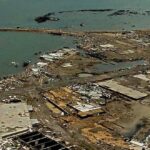
Ocean Spa Banda Aceh: Discover The Ultimate Relaxation And Pampering

Affordable Guest House In Banda Aceh
Masjid cut meutia: embracing tradition and modernity in banda aceh, blog , uncategorized, is it safe to travel to banda aceh.
© 2024 travel nurin
- Deutschland
You have exceeded the number of Favourites. Please remove some of them to add more.
Create your own Singapore guide with up to 12 of your Favourites.
As you browse through our site, add pages to your Favourites by clicking on the star button within every article.
To access and edit all your Favourites, click on the star button at the top right corner of every page throughout our site.
Himbauan Umum Terkait COVID-19 untuk Pengunjung
Yang harus anda lakukan jika anda merasa tidak sehat atau mendapatkan hasil positif covid-19 saat mengunjungi singapura.
Ketika Anda merasa kurang sehat atau hasil tes positif akan COVID-19
Pengunjung yang merasa kurang sehat atau hasil test positif akan COVID-19 harus mendapatkan anjuran medis jika mereka memenuhi kriteria berikut.
- Berusia 60 tahun atau lebih
- Memiliki gejala masalah pernapasan akut (ARI)
- Kelainan imin atau memiliki kondisi medis yang di miliki seperti obesitas (cth, orang dewasa dengan BMI ≥30), hipertensi, diabetes, penyakit jantung dan paru akut, penyakit ginjal dan dialysis, hiperkoagulan, kanker, atau pasien dalam pengobatan yang berefek akan imunosupresi
- Mengandung (hamil)
- Orang dengan Down Syndrome (Keterbelakangan Mental)
Orang dengan gejala gangguan pernapasan sedang bisa karantina di rumah hingga gejala mereda.
Jika ada kebutuhan untuk keluar ruangan Ketika sedang memiliki gejala, atau tidak begejala namun hasil tes positif akan COVID-19, silakan bertanggung jawab akan lingkungan sekitar dengan melakukan beberapa hal berikut.
- Berinteraksi seminimal mungkin
- Menggunakan masekr
- Hindari keramaian
- Jangan mengunjungi tempat-tempat rentan seperti rumah sakit dan rumah perawatan
- Jangan melakukan kontak dengan orang yang rentan seperti lansia.
Bacalah https://www.moh.gov.sg/licensing-and-regulation/telemedicine. Jika Anda mendapatkan hasil positif pada tes COVID-19 PCR, harap diingat kalau Anda akan mendapatkan penyedia telemedika terpisah untuk bantuan medis saat Anda menjalani Isolasi, dan tidak boleh menghubungi penyedia telemedika pada daftar ini.
Peralatan ART yang dikelola secara mandiri dapat dibeli di Internet atau dari apotek dan toko obat di seluruh Singapura. Hotel juga dapat menjual peralatan yang dikelola secara mandiri. Jika Anda mendapat hasil tes ART positif dan menjalani isolasi mandiri, Anda harus membeli peralatan ART melalui metode nirkontak dan tidak boleh meninggalkan akomodasi Anda untuk melakukannya.
Sebagaimana semestinya, wisatawan harus menyembuhkan diri di hotel atau akomodasi tempat tinggal kecuali mereka 1) setengah divaksinasi atau tidak divaksinasi, berumur 50 tahun, dan lebih tua 2) Divaksinasi, berumur 80 tahun dan lebih tua 3) Anak-anak berumur kurang dari 3 bulan dan anak-anak berumur 3 bulan hingga di bawah 3 tahun, yang telah diperiksa oleh profsional medis yang tidak cocok secara klinis untuk menyembuhkan diri di rumah atau hotel. Wisatawan ini akan disarankan oleh MOH untuk dipindahkan ke fasilitas perawatan yang tepat. Wisatawan dapat memilih untuk sembuh di rumah jika mereka memiliki tempat tinggal di Singapura. Wisatawan tidak dibolehkan check in ke hotel lain untuk penyembuhan, atau berganti lokasi isolasi mereka (mis. hotel transfer) begitu mereka memulai isolasi. Mereka hanya akan dibebaskan setelah memenuhi ketentuan sembuh.
Pemberitahuan Risiko Kesehatan (HRN) dikeluarkan kepada orang yang diidentifikasi sebagai orang yang kontak berdekatan dengan kasus positif COVID, baik berdasarkan catatan TraceTogether/SafeEntry, atau dinyatakan kontak berdekatan dengan kasus positif COVID.
- Panduan Wisata
- Rute perjalanan
- Pusat Pelawat Singapura
- Informasi perjalanan
- Pusat Informasi Covid-19
- Saran Perjalanan
Saran perjalanan
Pembatasan perjalanan bervariasi dari waktu ke waktu. Jika Anda berencana untuk melakukan perjalanan dalam waktu dekat, lihatlah saran perjalanan di situs web International Air Transport Association (IATA) atau otoritas setempat yang terkait untuk persyaratan paspor, visa, dan kesehatan terkini. Jika Anda memiliki penerbangan lanjutan sementara kota transit dan destinasi Anda menerapkan persyaratan yang berbeda, penuhilah persyaratan yang lebih ketat. Harap diperhatikan bahwa Anda bertanggung jawab untuk mematuhi semua persyaratan perjalanan untuk masuk ke destinasi Anda dan negara transit.
Tautan berguna
Jadwal Penerbangan
Menjaga Anda tetap aman
Hubungi Singapore Airlines
You are using an outdated browser. Please upgrade your browser to improve your experience.
- Skip to primary navigation
- Skip to main content
- Skip to primary sidebar
- Skip to footer

- Best Global Medical Insurance Companies
- Student Insurance
- Overseas Health Insurance
- Insurance for American Expats Abroad
- Canadian Expats – Insurance and Overseas Health
- Health Insurance for UK Citizens Living Abroad
- Expat Insurance for Japanese Abroad
- Expat Insurance for Germans Living Abroad
- Travel Medical Insurance Plans
- Annual Travel Insurance
- Visitors Insurance
- Top 10 Travel Insurance Companies
- Evacuation Insurance Plans
- Trip Cancellation Insurance
- International Life Insurance
- Corporate and Employee Groups
- Group Global Medical Insurance
- Group Travel Insurance
- Group Life Insurance
- Foreign General Liability for Organizations
- Missionary Groups
- School & Student Groups
- Volunteer Programs and Non-Profits
- Bupa Global Health Insurance
- Cigna Close Care
- Cigna Global Health Insurance
- Cigna Healthguard
- Xplorer Health Insurance Plan
- Navigator Student Health Insurance
- Voyager Travel Medical Plan
- Trekker Annual Multi-Trip Travel Insurance
- Global Medical Insurance Plan
- Patriot Travel Insurance
- Global Prima Medical Insurance
- Student Health Advantage
- Patriot Exchange – Insurance for Students
- SimpleCare Health Plan
- WorldCare Health Plan
- Seven Corners Travel Insurance
- SafeTreker Travel Insurance Plan
- Unisure International Insurance
- William Russell Life Insurance
- William Russell Health Insurance
Atlas Travel Insurance
- StudentSecure Insurance
- Compare Global Health Insurance Plans
- Compare Travel Insurance Plans
- Health Insurance in the USA
- Health Insurance in Mexico
- Health Insurance in Canada
- Health Insurance in Argentina
- Health Insurance in Colombia for Foreigners
- Health Insurance in Chile
- UK Health Insurance Plans for Foreigners
- Health Insurance in Germany
- French Health Insurance
- Italian Health Insurance
- Health Insurance in Sweden for Foreigners
- Portuguese Health Insurance
- Health Insurance in Spain for Foreigners
- Health Insurance in China
- Health Insurance in Japan
- Health Insurance in Dubai
- Health Insurance in India
- Thailand Health Insurance
- Malaysian Health Insurance for Foreigners
- Health Insurance in Singapore for Foreigners
- Australian Health Insurance for Foreigners
- Health Insurance in New Zealand
- South Africa Health Insurance for Foreigners
- USA Travel Insurance
- Australia Travel Insurance
- Mexico Travel Insurance
- News, Global Health Advice, and Travel Tips
- Insurance Articles
- Travel Advice and Tips
- Best Travel Insurance for Seniors
- Best Hospitals in the United States
- Best International Hospitals in the UK
- Best Hospitals in Mexico
Or call for a quote: 877-758-4881 +44 (20) 35450909
International Citizens Insurance
Medical, Life and Travel Plans!
U.S. 877-758-4881 - Intl. +44 (20) 35450909
Indonesia Travel Insurance and Safety Advice
Indonesia travel safety for visitors.
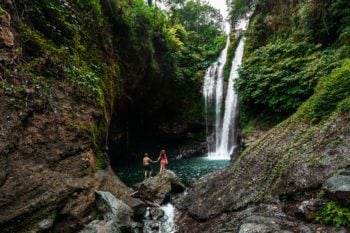
Do I Need Travel Insurance for Indonesia?
Visitors to Indonesia should have comprehensive travel insurance , with both trip and medical coverage. This applies to all trips to Indonesia, from a week at a resort to a six-month stint as a digital nomad. Visitors may need medical care after vehicle accidents, serious sunburn and heatstroke, and tropical and gastro diseases. While as of December 2022, Indonesia does not require visitors to hold health insurance or travel insurance, it is still a good idea for many reasons.
Indonesia’s healthcare system ranks 45th out of 195 countries, according to the Global Health Security Index . This means that for more complex medical issues, travelers may need to be transported back to their home country for care. Make sure that your travel health insurance includes repatriation, which means transport back to your home country for advanced care.
Indonesia is also home to several active volcanoes and regularly experiences earthquakes and tsunamis. Volcanic eruptions shut down or delayed air travel to Indonesia in 2015, 2017, and 2019. Further travel disruptions can come from political unrest within Indonesia, too. Travel insurance can help with these issues.
Many tourists visit Indonesia for an international experience that is both fun and affordable. But even budget backpackers can and should protect themselves with travel insurance for Indonesia. Australia’s official SmartTraveller site says frankly, “If you can’t afford travel insurance, you can’t afford to travel. This applies to everyone, no matter how healthy and fit you are. If you’re not insured, you may have to pay many 1000s of dollars up-front for medical care.”
Best Travel Insurance for Visitors to Indonesia
Here are options for international health and travel insurance for Indonesia. When you contact an insurer, tell them how long your trip or stay will be and what types of activities you plan to do. Someone spending a week in Balinese spas will have different insurance needs than a hiker exploring Indonesia’s national parks.

- Emergency medical, evacuation, repatriation benefits
- Choose between the basic and more extensive coverage
- Meets Schengen visa insurance requirements
- 24/7 worldwide travel and emergency medical assistance
Best Insurance for Adventure Travel in Indonesia


SafeTreker Adventure Sports Coverage
- Valid for US residents
- Coverage for over 450+ sports and activities
- Emergency medical coverage
Related: Health Insurance in Indonesia
Medical Preparation for Travel to Indonesia
If you have medical needs or prescriptions, here’s how to prepare for travel to Indonesia.
What Vaccinations Do I Need for Travel to Indonesia?
To go to Indonesia from September 2022, you must provide proof of COVID-19 vaccination , preferably as a certificate. Indonesia has released a new mobile app called SatuSehat, which replaces the previous mandatory app PeduliLindungi; however it is not clear at this time that tourists will need to download the app. The Ministry of Health in Indonesia uses this app to accelerate sharing treatment and more for COVID-19.
Starting on June 9, 2023, the Indonesian Government no longer requires proof of vaccination. However, the U.S. Centers for Disease Control recommends important vaccinations if you’re visiting Indonesia, including tetanus, Hepatitis A and B, and typhoid.
How to Bring Medications to Indonesia
You can bring over-the-counter medications to Indonesia without filling out any forms. However, to bring prescription medications to Indonesia, you must document them in detail.
Indonesia wants you to provide evidence that your medication is prescribed to you and that you need it. This is especially important for painkillers and for psychiatric drugs. Common medications that Indonesia prohibits include Tramadol, oxycodone, codeine, morphine and anything containing amphetamines (ADHD medication is in this category).
What do you need to do to bring prescribed medications with you to Indonesia?
- Before your trip, get a letter from your doctor and copies of your prescriptions. This is to confirm that your medication is prescribed to you and that you need it. You may also need to provide a travel itinerary. This letter and your travel boarding pass should have the same name on them. The letter should make it clear that this medication will be used only by you.
- You will then be asked to declare your medication with a customs declaration supported by your letter from your doctor.
- If you are traveling from some countries, such as Australia, or if your medication is complicated, your Indonesian consulate may want you to provide this documentation before you travel. In return, you will get a Certified Letter of Approved Medicines, written in Indonesian, that grants you permission to bring and carry your medications.
- Travel with copies of your letter from your doctor and of your prescriptions. Bring your medications in their original packaging, and bring only the amount that you need for your trip.
Indonesian Customs has the power to make a final decision about whether your medication is or is not allowed. Importantly, don’t bring medical THC or marijuana. They are not considered medications and are not legal in Indonesia.
Also Read: Checklist for Traveling with Prescription Medication Overseas
How to Access Medical Care in Indonesia for Visitors
Indonesia’s health care system is split between basic government health care and private health care supported by health insurance. Government health care is limited and may not provide the most current or thorough care. Visitors to major centers can expect to use private health care.
In Indonesia, a doctor’s visit at a private clinic or hospital ranges from $30 to $70 USD. Seek a healthcare provider who speaks your language. Major cities and tourist areas usually have an English-speaking healthcare clinic or hospital. These providers are often used to working with international health insurers, too.
If you need emergency care in Indonesia, be prepared. You can expect to pay fees for ambulance service from a private ambulance service. Seek a 24-hour clinic or hospital that speaks your language.
Major cities have some foreign pharmacies. In Indonesian, a pharmacy is called an apotik . A good apotik will have a doctor on site who can issue prescriptions. You may see medications for sale at roadside stalls – these are usually counterfeit and not recommended.
Traveling in rural or wilderness areas of Indonesia? Follow your usual medical precautions and bring everything you might need in case of an emergency. There is a shortage of medical care and emergency medical transport in rural areas. If you need medical care often, stick to major centers in Indonesia instead.
Related: Understanding Indonesia’s Health Care System
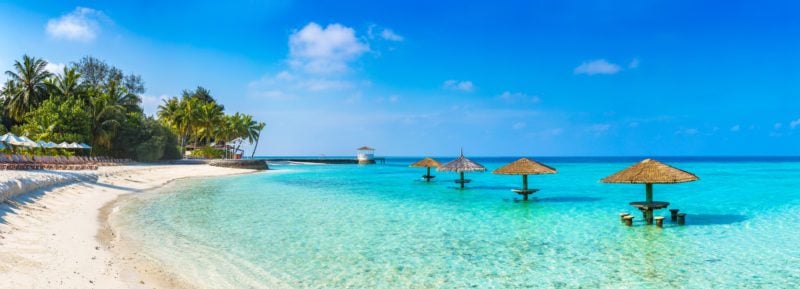
Travel Warnings and Alerts for Indonesia
International travelers need to be aware of travel warnings and alerts. Good news sources for Indonesia include the BBC, Al-Jazeera, and the Jakarta Post.
U.S. travelers can sign up for the US Smart Traveler Enrollment Program . Enroll your trip and get alerts during your time in Indonesia.
Websites with important alerts for Indonesia include:
- Australian government Smartraveller Indonesia page
- US Department of State Indonesia page
- UK Foreign Travel Advice Indonesia section
- Government of Canada travel advisory page for Indonesia
- Singapore Ministry of Foreign Affairs page
Emergency Contact Information for Indonesia
Here’s a quick guide to emergency phone numbers for Indonesia.
Emergency Assistance Numbers in Indonesia
These phone numbers will help you in cities, small towns, and national parks in Indonesia.
- Fast Medical Assistance – 118 or 119
- Search and Rescue – 115
- Police Department – 110
- Fire Department – 113
- Tourism Information – 116
Also, see the Indonesian government’s site for visitors and their “How do I make calls in Indonesia” page .
Embassy Phone Numbers in Indonesia
This list has phone numbers and links for English-language embassies in Jakarta, Indonesia’s capital city. Links also include information about consulates in other parts of Indonesia, especially Bali.
- United States: +62-21-5083-1000, press 1 for assistance, see U.S. Embassy page for consulate contacts
- Australia: +62-21-2550-5555; see Australian Embassy page for consulate contacts.
- New Zealand: +62-21-299-55800; for after-hours or consulate contacts, see the related NZ diplomatic web page .
- Canada: + 62-21-2550-7800; for consular contacts, see the Canada Travel Destinations page.
- United Kingdom: +62 (21) 2356 5200 for urgent help from the U.K.; for more, see the UK help and services in Indonesia page .
Tips for Safe Travel in Indonesia
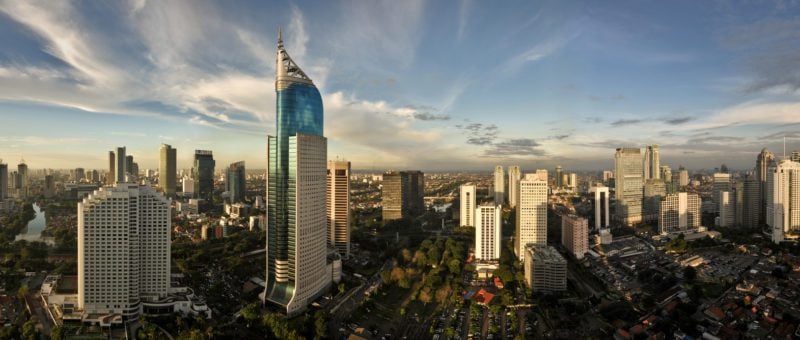
Seven Safety Tips for All of Indonesia
- Only drink bottled water. Don’t drink tap water in Indonesia in any form. Ice in drinks, fruit or vegetables washed in tap water, or even water in your mouth in the shower can introduce gastro bugs to your system.
- Avoid food poisoning; be careful about what and where you eat. Food poisoning happens so often in Indonesia that Australian travelers call it “Bali belly.”
- Watch your valuables. Bag snatching and pickpocketing are common in tourist areas – the most common crime is the theft of mobile phones. Do not leave belongings on a beach to swim or wade and expect to find them there when you return!
- Indonesia has a hot, tropical climate. Protect yourself with sunscreen, hats, insect repellent, and water bottles with safe water. If you are not sleeping in a closed or screened room, do your best to sleep protected by a mosquito net. Mosquito bites here can transmit malaria and dengue fever.
- Be aware of Indonesia’s laws and social beliefs, especially if traveling alone. While Indonesia is hot and tropical, it is a predominantly Muslim country. Modest, covered dress and good manners help travelers blend in. Indonesia has very strict laws against recreational drugs of any kind, including marijuana, CBD and THC products. Some provinces in Indonesia criminalize consensual same-sex activity . There is also much prejudice against LGBTQIA people, which can lead to harassment.
- Be careful around animals. Stray dogs and wild monkeys may beg for food or follow you, but they can be rabid or carry flea and tick diseases.
- Women traveling solo should take extra precautions. Women travelers on their own report problems with sexual harassment from locals and other visitors. Women can support their personal security with a door stopper or lock, an attention-grabbing whistle, and a budget for more upscale lodging and transport.
Is Bali Safe? Yes, But Watch Out for Scams
Bali is one of the safest places in Indonesia for visitors. English speakers can find most essential services, including medical care, from English-speaking providers. Bali is also one of the world’s top tourist destinations. And if there’s a tourist scam going on, you will find it in Bali. See what SmartTraveller.gov.au has to say about tourist scams and how to protect yourself .
For more Bali safety, be aware that tourists also get into trouble with accidents and thefts while riding rental scooters. It’s easy to have a bag snatched while you are on a scooter. Also, be careful in Bali’s party district, Kuta, especially with mobile phones.
Use Urban Precautions for Safety in Jakarta
Visiting Jakarta? Use all your precautions for visiting a risky urban area. Jakarta has a low safety rating among Asian cities . Distracted or tired visitors are at risk of pickpockets, scams, and long travel delays. Avoid taxis that don’t use meters. Be careful around traffic, especially when crossing busy streets. Foreigners should avoid certain neighborhoods, such as West Jakarta and Blok M in southern Jakarta.
Another risk in Jakarta is ATM crime, where your account is skimmed after using an ATM card. Only use ATM machines directly located at and supervised by banks.
Safe Travel Around Volcanoes and Quakes in Indonesia
Over the past decade, volcanic eruptions have often interfered with travel to and from Indonesia. Be wary about visiting or hiking near any volcanoes that have been showing signs of activity. Prepare in advance by buying travel insurance for Indonesia to cover any disruptions.
Quakes happen too in Indonesia, and they can cause tsunami flooding along the coastline. Indonesia was impacted by the Boxing Day Tsunami of 2004, and other tsunamis have caused damage and death in visitor areas as recently as 2018.
Basic quake safety is to drop, cover, and hold on. If you are near the beach or a coastline, if the quake is “long or strong, get gone” to avoid being in a tsunami zone. The United States Geological Survey provides good quake and tsunami safety guidelines .
Related: What To Do If You Experience a Natural Disaster Abroad
Indonesia Adventure Travel: Get Serious About Safety
Indonesia’s rural areas hold treasures of culture and nature. UNESCO World Heritage sites and national parks beckon adventurers. You may also travel to rural Indonesia as a volunteer, a researcher, or for work. Be prepared and research what your venture needs. If you are traveling for fun or wilderness challenges, seriously consider a tour or traveling with a group.
Be diligent about safety in the ocean, when traveling by boat or on dirt roads, and in the wilderness, where you can encounter wildlife, including poisonous snakes. Crime and terrorism happen in remote areas here. Bring any medications you need, a first aid kit, and spare supplies for tropical conditions. A satellite tracker is a great item for hikers or kayakers to have. Learning essential Indonesian will help you in emergencies.
Enjoy Indonesia and Stay Savvy
In 2019, over 16 million people visited Indonesia. Almost all of them had a safe and positive experience – and many of them want to return. With changes to travel after 2020, including new digital nomad visas, savvy voyagers know that travel insurance for Indonesia will protect them, whatever adventures they choose.
- Best Hospitals in Indonesia for Expats and Visitors
- Adventure Travel: Does My Health Insurance Cover Me For That?
- Health Insurance Plans in Asia
Get a fast, free, international insurance quote.
Global medical plans, specialty coverage, company info, customer service.
- Sustainability
- Latest News
- News Reports
- Documentaries & Shows
- TV Schedule
- CNA938 Live
- Radio Schedule
- Singapore Parliament
- Mental Health
- Interactives
- Entertainment
- Style & Beauty
- Experiences
- Remarkable Living
- Send us a news tip
- Events & Partnerships
- Business Blueprint
- Health Matters
- The Asian Traveller
Trending Topics
Follow our news, recent searches, singapore foreign minister vivian balakrishnan to make working visit to indonesia, advertisement.
Minister for Foreign Affairs Dr Vivian Balakrishnan with Indonesian President Joko Widodo during a working visit to Jakarta in July 2019. (Photo: Ministry of Foreign Affairs, Singapore)
SINGAPORE: Minister for Foreign Affairs Vivian Balakrishnan will make a working visit to Jakarta from Apr 23 to Apr 26, said Singapore's Ministry of Foreign Affairs (MFA) on Monday (Apr 22).
Dr Balakrishnan's visit "underscores the close friendship and cooperation between Singapore and Indonesia over the years, and reflects the shared desire to further strengthen cooperation", added the ministry.
He will call on Indonesian President Joko Widodo and be hosted by his counterpart Retno Marsudi.
Dr Balakrishnan will also meet Indonesian President-elect and Minister of Defence Prabowo Subianto .
Mr Prabowo won the Feb 14 election with nearly 60 per cent of votes, according to the country's election body's official tally. He is expected to take over as president in October.
Dr Balakrishnan will also meet other Indonesian officials such as Coordinating Minister for Economic Affairs Airlangga Hartarto, Minister of Tourism and Creative Economy Sandiaga Uno, and Minister of Agrarian Affairs and Spatial Planning Agus Harimurti Yudhoyono.
He will also call on former Indonesian presidents Susilo Bambang Yudhoyono and Megawati Soekarnoputri.
Dr Balakrishnan will be accompanied by officials from the MFA during his visit.
Related Topics
Also worth reading, this browser is no longer supported.
We know it's a hassle to switch browsers but we want your experience with CNA to be fast, secure and the best it can possibly be.
To continue, upgrade to a supported browser or, for the finest experience, download the mobile app.
Upgraded but still having issues? Contact us
Cookies on GOV.UK
We use some essential cookies to make this website work.
We’d like to set additional cookies to understand how you use GOV.UK, remember your settings and improve government services.
We also use cookies set by other sites to help us deliver content from their services.
You have accepted additional cookies. You can change your cookie settings at any time.
You have rejected additional cookies. You can change your cookie settings at any time.
- Passports, travel and living abroad
- Travel abroad
- Foreign travel advice
Warnings and insurance
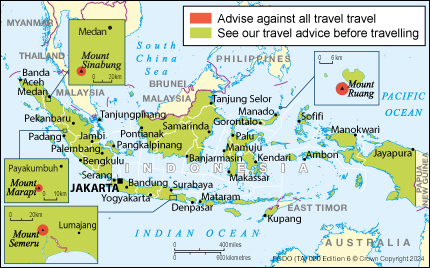
The Foreign, Commonwealth & Development Office (FCDO) provides advice about risks of travel to support British nationals in making informed decisions. Find out more about FCDO travel advice .
Areas where the FCDO advises against travel
Your travel insurance could be invalidated if you travel against FCDO advice. Consular support is also severely limited where FCDO advises against travel.
Mount Ruang, Northern Sulawesi
FCDO advises against all travel to within 6km of the crater of Mount Ruang in Northern Sulawesi. This is an exclusion zone put into place by the local authorities. Mount Ruang erupted on 16 April 2024.
Mount Marapi, Western Sumatra
FCDO advises against all travel to within 3km of the crater of Mount Marapi in West Sumatra.
Mount Sinabung area, Karo Regency
FCDO advises against all travel within 5 km of the Mount Sinabung crater in Karo Regency, North Sumatra.
Mount Semeru area, Lumajang Regency
FCDO advises against all travel within 5 km of the crater of Mount Semeru in Lumajang Regency, East Java. FCDO also advises against all travel to the southeast area of Mount Semeru along the Besuk Kobokan river (approximately 13 km from the crater). You should stay at least 500 m from the Besuk Kobokan riverbank.
Find out more about why FCDO advises against travel
Before you travel
No travel can be guaranteed safe. Read all the advice in this guide as well as support for British nationals abroad which includes:
- advice on preparing for travel abroad and reducing risks
- information for women, LGBT and disabled travellers
Follow and contact FCDO travel on Twitter , Facebook and Instagram . You can also sign up to get email notifications when this advice is updated.
Travel insurance
If you choose to travel, research your destinations and get appropriate travel insurance . Insurance should cover your itinerary, planned activities and potential expenses in an emergency.
Related content
Is this page useful.
- Yes this page is useful
- No this page is not useful
Help us improve GOV.UK
Don’t include personal or financial information like your National Insurance number or credit card details.
To help us improve GOV.UK, we’d like to know more about your visit today. We’ll send you a link to a feedback form. It will take only 2 minutes to fill in. Don’t worry we won’t send you spam or share your email address with anyone.
- Skip to main content
- Skip to "About this site"
Language selection
Search travel.gc.ca.
Help us to improve our website. Take our survey !
COVID-19: travel health notice for all travellers
Singapore travel advice
Latest updates: The Health section was updated - travel health information (Public Health Agency of Canada)
Last updated: April 16, 2024 10:37 ET
On this page
Safety and security, entry and exit requirements, laws and culture, natural disasters and climate, singapore - take normal security precautions.
Take normal security precautions in Singapore
Back to top
Petty crime, such as pickpocketing and purse snatching, occurs, particularly in the following locations:
- public transportation facilities
- areas frequented by tourists
Ensure that your belongings, including passport and other travel documents, are secure at all times.
Credit card and ATM fraud occur. When you are using debit or credit cards:
- pay careful attention when other people are handling your cards
- use ATMs located in well-lit public areas or inside a bank or business
- avoid using card readers with an irregular or unusual feature
- cover the keypad with one hand when entering your PIN
- check for any unauthorized transactions on your account statements
- shop only at reputable establishments where prices are listed
- check prices before buying goods because some retailers charge foreigners exorbitant prices
Overseas fraud
Property rental scams
Scams involving property rental occur. The scams may include online advertising of properties that are not available for rent or that don’t exist.
You should :
- book your rental through a reputable service
- visit the accommodation and meet the landlord before agreeing to pay any money
Information about known local scams - Singapore’s National Crime Prevention Council
There is a threat of terrorism. Terrorist attacks could occur at any time, and targets could include:
- government buildings, including schools
- places of worship
- airports and other transportation hubs and networks
- public areas such as tourist attractions, restaurants, bars, coffee shops, shopping centres, markets, hotels and other sites frequented by foreigners
Singaporean security agencies are on high vigilance.
- Expect enhanced security measures and border checks
- Always be aware of your surroundings when in public places
Demonstrations
All demonstrations and gatherings require a permit. Unauthorized demonstrations, even those involving one person, are illegal. The police can arrest, without warrant, any person involved in or suspected of disrupting the public order.
As a foreigner, you may require special permission to attend any demonstrations, even as an observer.
- Avoid areas where demonstrations, political or large gatherings are taking place, such as Speakers’ Corner in Hong Lim Park
- Follow the instructions of local authorities
- Monitor local media for information on ongoing demonstrations
Mass gatherings (large-scale events)
Road safety
Road conditions and road safety are very good throughout the country.
Frequent showers may pose a road hazard.
Vehicles don’t usually yield to pedestrians. Exercise caution when walking on or crossing streets.
Pirate attacks and armed robberies occur against ships in and around:
- Singapore Strait
- Strait of Malacca
- between Indonesia’s Riau Islands and Singapore
Mariners should take appropriate precautions.
Live piracy report - International Maritime Bureau
We do not make assessments on the compliance of foreign domestic airlines with international safety standards.
Information about foreign domestic airlines
Every country or territory decides who can enter or exit through its borders. The Government of Canada cannot intervene on your behalf if you do not meet your destination’s entry or exit requirements.
We have obtained the information on this page from the Singaporean authorities. It can, however, change at any time.
Verify this information with the Foreign Representatives in Canada .
Entry requirements vary depending on the type of passport you use for travel.
Before you travel, check with your transportation company about passport requirements. Its rules on passport validity may be more stringent than the country’s entry rules.
Regular Canadian passport
Your passport must be valid for at least 6 months beyond the date you enter Singapore. This also applies to passengers in transit.
Passport for official travel
Different entry rules may apply.
Official travel
Passport with “X” gender identifier
While the Government of Canada issues passports with an “X” gender identifier, it cannot guarantee your entry or transit through other countries. You might face entry restrictions in countries that do not recognize the “X” gender identifier. Before you leave, check with the closest foreign representative for your destination.
Other travel documents
Different entry rules may apply when travelling with a temporary passport or an emergency travel document. Before you leave, check with the closest foreign representative for your destination.
Useful links
- Foreign Representatives in Canada
- Canadian passports
Tourist visa: not required for stays of up to 30 days Business visa: not required for stays of up to 30 days Student visa: required
The Ministry of Manpower allows work pass exemptions for certain activities. If you qualify for an exemption, you must notify local authorities through their e-notification system.
The Singapore Immigration and Checkpoints Authority may also approve, under certain circumstances, an extension of the 30-day stay period.
- Visa extensions - Immigration and Checkpoints Authority of Singapore
- Work pass exemptions - Ministry of Manpower of Singapore
- Entry security requirements - Singaporean Immigration and checkpoints authority
Other entry requirements
Customs officials may ask you to show them a return or onward ticket and proof of sufficient funds to cover your stay.
Fingerprints
Immigration officials will fingerprint all visitors upon arrival and departure.
Health entry requirements
Canadians planning to study, work or reside in Singapore for longer than 6 months must undergo a complete medical examination that includes a chest X-ray and a test for HIV. Issuance of an employment pass, long-term immigration pass or permanent residence is subject to the outcome of the medical report.
All testing must be completed in Singapore.
Children and travel
Learn more about travelling with children .
Yellow fever
Learn about potential entry requirements related to yellow fever (vaccines section).
Relevant Travel Health Notices
- Global Measles Notice - 13 March, 2024
- Zika virus: Advice for travellers - 31 August, 2023
- COVID-19 and International Travel - 13 March, 2024
This section contains information on possible health risks and restrictions regularly found or ongoing in the destination. Follow this advice to lower your risk of becoming ill while travelling. Not all risks are listed below.
Consult a health care professional or visit a travel health clinic preferably 6 weeks before you travel to get personalized health advice and recommendations.
Routine vaccines
Be sure that your routine vaccinations , as per your province or territory , are up-to-date before travelling, regardless of your destination.
Some of these vaccinations include measles-mumps-rubella (MMR), diphtheria, tetanus, pertussis, polio, varicella (chickenpox), influenza and others.
Pre-travel vaccines and medications
You may be at risk for preventable diseases while travelling in this destination. Talk to a travel health professional about which medications or vaccines may be right for you, based on your destination and itinerary.
Yellow fever is a disease caused by a flavivirus from the bite of an infected mosquito.
Travellers get vaccinated either because it is required to enter a country or because it is recommended for their protection.
- There is no risk of yellow fever in this country.
Country Entry Requirement*
- Proof of vaccination is required if you are coming from or have transited through an airport of a country where yellow fever occurs.
Recommendation
- Vaccination is not recommended.
- Discuss travel plans, activities, and destinations with a health care professional.
- Contact a designated Yellow Fever Vaccination Centre well in advance of your trip to arrange for vaccination.
About Yellow Fever
Yellow Fever Vaccination Centres in Canada * It is important to note that country entry requirements may not reflect your risk of yellow fever at your destination. It is recommended that you contact the nearest diplomatic or consular office of the destination(s) you will be visiting to verify any additional entry requirements.
There is a risk of hepatitis A in this destination. It is a disease of the liver. People can get hepatitis A if they ingest contaminated food or water, eat foods prepared by an infectious person, or if they have close physical contact (such as oral-anal sex) with an infectious person, although casual contact among people does not spread the virus.
Practise safe food and water precautions and wash your hands often. Vaccination is recommended for all travellers to areas where hepatitis A is present.
Measles is a highly contagious viral disease. It can spread quickly from person to person by direct contact and through droplets in the air.
Anyone who is not protected against measles is at risk of being infected with it when travelling internationally.
Regardless of where you are going, talk to a health care professional before travelling to make sure you are fully protected against measles.
Japanese encephalitis is a viral infection that can cause swelling of the brain. It is spread to humans through the bite of an infected mosquito. Risk is very low for most travellers. Travellers at relatively higher risk may want to consider vaccination for JE prior to travelling.
Travellers are at higher risk if they will be:
- travelling long term (e.g. more than 30 days)
- making multiple trips to endemic areas
- staying for extended periods in rural areas
- visiting an area suffering a JE outbreak
- engaging in activities involving high contact with mosquitos (e.g., entomologists)
Hepatitis B is a risk in every destination. It is a viral liver disease that is easily transmitted from one person to another through exposure to blood and body fluids containing the hepatitis B virus. Travellers who may be exposed to blood or other bodily fluids (e.g., through sexual contact, medical treatment, sharing needles, tattooing, acupuncture or occupational exposure) are at higher risk of getting hepatitis B.
Hepatitis B vaccination is recommended for all travellers. Prevent hepatitis B infection by practicing safe sex, only using new and sterile drug equipment, and only getting tattoos and piercings in settings that follow public health regulations and standards.
The best way to protect yourself from seasonal influenza (flu) is to get vaccinated every year. Get the flu shot at least 2 weeks before travelling.
The flu occurs worldwide.
- In the Northern Hemisphere, the flu season usually runs from November to April.
- In the Southern Hemisphere, the flu season usually runs between April and October.
- In the tropics, there is flu activity year round.
The flu vaccine available in one hemisphere may only offer partial protection against the flu in the other hemisphere.
The flu virus spreads from person to person when they cough or sneeze or by touching objects and surfaces that have been contaminated with the virus. Clean your hands often and wear a mask if you have a fever or respiratory symptoms.
In this destination, rabies may be present in some wildlife species, including bats. Rabies is a deadly disease that spreads to humans primarily through bites or scratches from an infected animal.
If you are bitten or scratched by an animal while travelling, immediately wash the wound with soap and clean water and see a health care professional.
Before travel, discuss rabies vaccination with a health care professional. It may be recommended for travellers who will be working directly with wildlife.
Coronavirus disease (COVID-19) is an infectious viral disease. It can spread from person to person by direct contact and through droplets in the air.
It is recommended that all eligible travellers complete a COVID-19 vaccine series along with any additional recommended doses in Canada before travelling. Evidence shows that vaccines are very effective at preventing severe illness, hospitalization and death from COVID-19. While vaccination provides better protection against serious illness, you may still be at risk of infection from the virus that causes COVID-19. Anyone who has not completed a vaccine series is at increased risk of being infected with the virus that causes COVID-19 and is at greater risk for severe disease when travelling internationally.
Before travelling, verify your destination’s COVID-19 vaccination entry/exit requirements. Regardless of where you are going, talk to a health care professional before travelling to make sure you are adequately protected against COVID-19.
Safe food and water precautions
Many illnesses can be caused by eating food or drinking beverages contaminated by bacteria, parasites, toxins, or viruses, or by swimming or bathing in contaminated water.
- Learn more about food and water precautions to take to avoid getting sick by visiting our eat and drink safely abroad page. Remember: Boil it, cook it, peel it, or leave it!
- Avoid getting water into your eyes, mouth or nose when swimming or participating in activities in freshwater (streams, canals, lakes), particularly after flooding or heavy rain. Water may look clean but could still be polluted or contaminated.
- Avoid inhaling or swallowing water while bathing, showering, or swimming in pools or hot tubs.
Typhoid is a bacterial infection spread by contaminated food or water. Risk is higher among children, travellers going to rural areas, travellers visiting friends and relatives or those travelling for a long period of time.
Travellers visiting regions with a risk of typhoid, especially those exposed to places with poor sanitation, should speak to a health care professional about vaccination.
Insect bite prevention
Many diseases are spread by the bites of infected insects such as mosquitoes, ticks, fleas or flies. When travelling to areas where infected insects may be present:
- Use insect repellent (bug spray) on exposed skin
- Cover up with light-coloured, loose clothes made of tightly woven materials such as nylon or polyester
- Minimize exposure to insects
- Use mosquito netting when sleeping outdoors or in buildings that are not fully enclosed
To learn more about how you can reduce your risk of infection and disease caused by bites, both at home and abroad, visit our insect bite prevention page.
Find out what types of insects are present where you’re travelling, when they’re most active, and the symptoms of the diseases they spread.
There is a risk of chikungunya in this country. The risk may vary between regions of a country. Chikungunya is a virus spread through the bite of an infected mosquito. Chikungunya can cause a viral disease that typically causes fever and pain in the joints. In some cases, the joint pain can be severe and last for months or years.
Protect yourself from mosquito bites at all times. There is no vaccine available for chikungunya.
- In this country, risk of dengue is sporadic. It is a viral disease spread to humans by mosquito bites.
- Dengue can cause flu-like symptoms. In some cases, it can lead to severe dengue, which can be fatal.
- The level of risk of dengue changes seasonally, and varies from year to year. The level of risk also varies between regions in a country and can depend on the elevation in the region.
- Mosquitoes carrying dengue typically bite during the daytime, particularly around sunrise and sunset.
- Protect yourself from mosquito bites . There is no vaccine or medication that protects against dengue fever.
Animal precautions
Some infections, such as rabies and influenza, can be shared between humans and animals. Certain types of activities may increase your chance of contact with animals, such as travelling in rural or forested areas, camping, hiking, and visiting wet markets (places where live animals are slaughtered and sold) or caves.
Travellers are cautioned to avoid contact with animals, including dogs, livestock (pigs, cows), monkeys, snakes, rodents, birds, and bats, and to avoid eating undercooked wild game.
Closely supervise children, as they are more likely to come in contact with animals.
Person-to-person infections
Stay home if you’re sick and practise proper cough and sneeze etiquette , which includes coughing or sneezing into a tissue or the bend of your arm, not your hand. Reduce your risk of colds, the flu and other illnesses by:
- washing your hands often
- avoiding or limiting the amount of time spent in closed spaces, crowded places, or at large-scale events (concerts, sporting events, rallies)
- avoiding close physical contact with people who may be showing symptoms of illness
Sexually transmitted infections (STIs) , HIV , and mpox are spread through blood and bodily fluids; use condoms, practise safe sex, and limit your number of sexual partners. Check with your local public health authority pre-travel to determine your eligibility for mpox vaccine.
Medical services and facilities
Health care is excellent.
Medical services are costly, and payment is required up front.
Medical evacuation can be very expensive and you may need it in case of serious illness or injury.
Make sure you get travel insurance that includes coverage for medical evacuation and hospital stays.
Travel health and safety
Medications
Certain prescription and over-the-counter medications, legally available in Canada, may be classified as controlled substances in Singapore.
Consult Singapore’s Health Sciences Authority to determine if you must obtain permission to import some personal medications.
Bringing personal medication into Singapore - Singapore’s Health Sciences Authority
You must abide by local laws.
Learn about what you should do and how we can help if you are arrested or detained abroad .
Identification
Local police may ask to see your passport and visa at any time. They could detain you while they verify your identification documents.
- Carry adequate identification at all times
- Always cooperate with local authorities
- Keep a photocopy or digital copy of your passport in a safe place, in case of loss or seizure
Penalties for possession, use or trafficking of illegal drugs are severe. Convicted offenders can expect jail sentences, heavy fines or the death penalty.
Custom officers can subject travellers to a drug screening test at the point of entry to Singapore. If you test positive for drugs, you can be arrested and prosecuted, even if the drugs were consumed prior to your arrival in the country.
Consuming alcohol in public places between 10:30 p.m. and 7 a.m. is illegal.
In Liquor Control Zones, the alcohol ban is extended to all day on weekends. Local authorities may impose additional restrictions in these zones.
If you don’t comply, you could face heavy fines and jail time.
Drugs, alcohol and travel
- Map of liquor control zones - Government of Singapore
The legal age for smoking is 21 years old.
Smoking is prohibited in many public spaces, such as:
- parks and gardens
- the ABC Water Sites and Reservoir Parks
- certain public beaches
If you’re caught smoking in prohibited places could face heavy fines.
Overview of Smoking Prohibition – Singapore’s National Environment Agency
Other illegal or restricted activities
Singapore has strict laws and penalties against a variety of actions that may not be illegal or may be considered minor offences in Canada. This includes:
- littering or spitting
- importing, selling, or chewing gum
- eating and drinking on the mass rapid transit system
- inappropriate masculine behaviour
- using foul language
- inappropriate displays of affection or molestation
- shoplifting
Convicted offenders may expect:
- corporal punishment, generally in the form of caning
- imprisonment
- a combination thereof
Restricted items
Local authorities enforce strict regulations on the import and export of items, such as:
- e-cigarettes, vaporisers and their refills
- certain religious material
- pornographic material
- CDs and DVDs
All luggage is X-rayed at ports of entry, and checked luggage may be inspected for regulated items.
You may be detained if you carry any of these items without permission.
Religious activities
Jehovah’s Witness meetings, including private meetings, are illegal. Possession of a Jehovah’s Witness bible or any related publication is also illegal.
The Unification Church is affected by similar laws.
In 2025, the lunar month of Ramadan is expected to begin on or around February 28.
In public, between sunrise and sunset, be discreet when:
2SLGBTQI+ travellers
Singapore laws prohibit displays of affection and sexual acts between males. Those convicted can face imprisonment.
2SLGBTQI+ travellers could also be discriminated against or detained based on their sexual orientation, gender identity, gender expression, or sex characteristics.
2SLGBTQI+ travellers should carefully consider the risks of travelling to Singapore.
Travel and your sexual orientation, gender identity, gender expression and sex characteristics
Common-law relationships
Common-law relationships are not recognized. If you are in a common-law relationship, you may have to provide proof to support the claim of your union by common-law to local authorities.
You may draft your own statutory declaration to proclaim your common-law relationship with another individual and request to notarize your declaration at the High Commission of Canada in Singapore. However, the High Commission cannot “certify” or “validate” your common-law relationship.
Traffic drives on the left. You must carry an international driving permit.
If you reside in Singapore for more than 12 months, you must convert your valid Canadian driving licence to a Singapore Driving Licence.
Traffic regulations are strictly enforced.
Drinking and driving is a serious offence. Sentences can be up to 10 years in prison.
- More about the International Driving Permit
- Converting a foreign driver’s licence - Singapore Police Force
Dual citizenship
Dual citizenship is not legally recognized in Singapore.
However, if you acquire two or more citizenships at birth, you can keep them all, including Singaporean citizenship, until the age of 21. At 21, local authorities may ask you to choose between your Singaporean citizenship or other citizenships.
If you’re a citizen of Canada, but also a citizen of Singapore, our ability to offer you consular services may be limited while you’re there. You may also be subject to different entry or exit requirements, and other national obligations such as military service.
- General information for travellers with dual citizenship
- Ministry of Foreign Affairs of Singapore - Singapore Government
International Child Abduction
The Hague Convention on the Civil Aspects of International Child Abduction is an international treaty. It can help parents with the return of children who have been removed to or retained in certain countries in violation of custody rights. The convention applies between Canada and Singapore.
If your child was wrongfully taken to, or is being held in Singapore, and if the applicable conditions are met, you may apply for the return of your child to the Singaporean court.
If you are in this situation:
- act as quickly as you can
- contact the Central Authority for your province or territory of residence for information on starting an application under The Hague Convention
- consult a lawyer in Canada and in Singapore to explore all the legal options for the return of your child
- report the situation to the nearest Canadian government office abroad or to the Vulnerable Children’s Consular Unit at Global Affairs Canada by calling the Emergency Watch and Response Centre
If your child was removed from a country other than Canada, consult a lawyer to determine if The Hague Convention applies.
Be aware that Canadian consular officials cannot interfere in private legal matters or in another country’s judicial affairs.
- List of Canadian Central Authorities for the Hague Convention
- International Child Abduction: A Guidebook for Left-Behind Parents
- Travelling with children
- The Hague Convention - Hague Conference on Private International Law
- Canadian embassies and consulates by destination
- Emergency Watch and Response Centre
The currency in Singapore is the Singaporean dollar (SGD).
Typhoons and monsoon
The rainy (or monsoon) season extends from:
- December to March in the northeast
- June to September in the southeast
During this period, even small tropical storm can quickly develop into major typhoons. These severe storms can put you at risk.
These severe storms can put you at risk and slow down the provision of essential services.
If you decide to travel to Singapore during the typhoon season:
- know that you expose yourself to serious safety risks
- be prepared to change your travel plans on short notice, including cutting short or cancelling your trip
- keep up to date with the latest regional weather forecasts
- carry emergency contact information for your airline or tour operator
- follow the advice and instructions of local authorities
- Meteorological service Singapore - Singapore Government
- Tornadoes, cyclones, hurricanes, typhoons and monsoons
- Large-scale emergencies abroad
Air pollution
Smoke haze and other types of air pollution can be particularly hazardous between June and October.
You should monitor air pollution levels, especially if you suffer from respiratory ailments or if you have a pre-existing medical condition.
Air quality information - Singapore’s National Environment Agency
Local services
In case of emergency, dial:
- Police: 999
- Firefighters: 995
- Ambulance: 995
Consular assistance
For emergency consular assistance, call the High Commission of Canada in Singapore, and follow the instructions. At any time, you may also contact the Emergency Watch and Response Centre in Ottawa.
The decision to travel is your choice and you are responsible for your personal safety abroad. We take the safety and security of Canadians abroad very seriously and provide credible and timely information in our Travel Advice to enable you to make well-informed decisions regarding your travel abroad.
The content on this page is provided for information only. While we make every effort to give you correct information, it is provided on an "as is" basis without warranty of any kind, expressed or implied. The Government of Canada does not assume responsibility and will not be liable for any damages in connection to the information provided.
If you need consular assistance while abroad, we will make every effort to help you. However, there may be constraints that will limit the ability of the Government of Canada to provide services.
Learn more about consular services .
Risk Levels
take normal security precautions.
Take similar precautions to those you would take in Canada.
Exercise a high degree of caution
There are certain safety and security concerns or the situation could change quickly. Be very cautious at all times, monitor local media and follow the instructions of local authorities.
IMPORTANT: The two levels below are official Government of Canada Travel Advisories and are issued when the safety and security of Canadians travelling or living in the country or region may be at risk.
Avoid non-essential travel
Your safety and security could be at risk. You should think about your need to travel to this country, territory or region based on family or business requirements, knowledge of or familiarity with the region, and other factors. If you are already there, think about whether you really need to be there. If you do not need to be there, you should think about leaving.
Avoid all travel
You should not travel to this country, territory or region. Your personal safety and security are at great risk. If you are already there, you should think about leaving if it is safe to do so.
Update April 12, 2024
Information for u.s. citizens in the middle east.
- Travel Advisories |
- Contact Us |
- MyTravelGov |
Find U.S. Embassies & Consulates
Travel.state.gov, congressional liaison, special issuance agency, u.s. passports, international travel, intercountry adoption, international parental child abduction, records and authentications, popular links, travel advisories, mytravelgov, stay connected, legal resources, legal information, info for u.s. law enforcement, replace or certify documents.
Share this page:
Learn about your destination
Take 90 seconds for safer travel.
Travel Advisory Levels
Enroll in step.

Subscribe to get up-to-date safety and security information and help us reach you in an emergency abroad.
Recommended Web Browsers: Microsoft Edge or Google Chrome.
External Link
You are about to leave travel.state.gov for an external website that is not maintained by the U.S. Department of State.
Links to external websites are provided as a convenience and should not be construed as an endorsement by the U.S. Department of State of the views or products contained therein. If you wish to remain on travel.state.gov, click the "cancel" message.
You are about to visit:
- Travel Updates
Indonesia’s Mount Ruang volcano erupts again with thousands evacuated over tsunami threat
Thousands of people have been evacuated over the threat of a tsunami in Indonesia after a remote volcano erupted again.

Fury after major city charges entry fee

Photo of men standing on rock sparks outrage
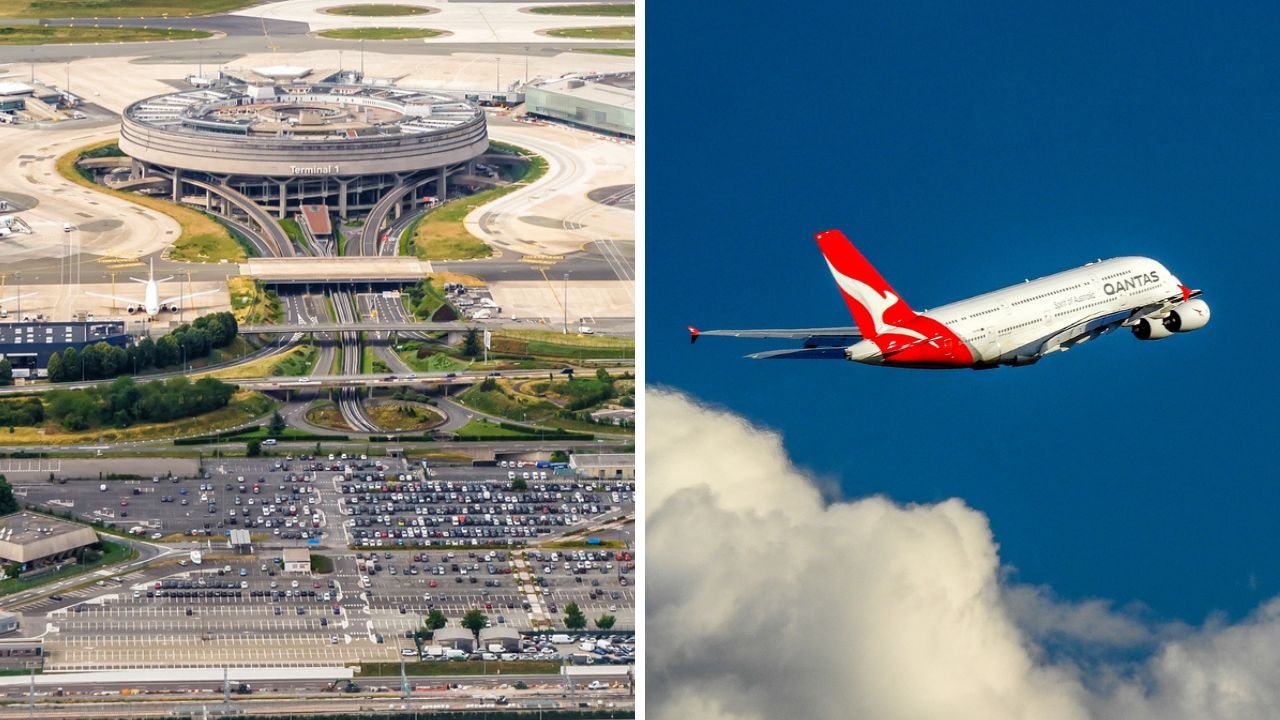
Chaos expected: ‘70% of flights cancelled’
Indonesia’s Mount Ruang volcano has erupted again, prompting authorities to issue the highest level of alert and warn of a possible tsunami.
The remote volcano, located in Indonesia’s North Sulawesi province, erupted about 1.15am local time on Tuesday, sending a tower of ash more than 2000m into the sky, the country’s volcanology agency said.
Locals and tourists are warned not to go within a 7km radius of the centre of the active crater, with thousands of people on Ruang island and nearby Tagulandang island ordered to evacuate.

The Center for Volcanology and Geological Hazard Mitigation (PVMBG) warned of “potential for ejections of incandescent rocks, hot clouds and tsunamis due to eruptive material entering the sea”.
Sam Ratulangi International Airport in Manado, more than 100 kilometres away, was also closed for “aviation safety and security reasons” and expected to reopen at noon on Wednesday, local time.
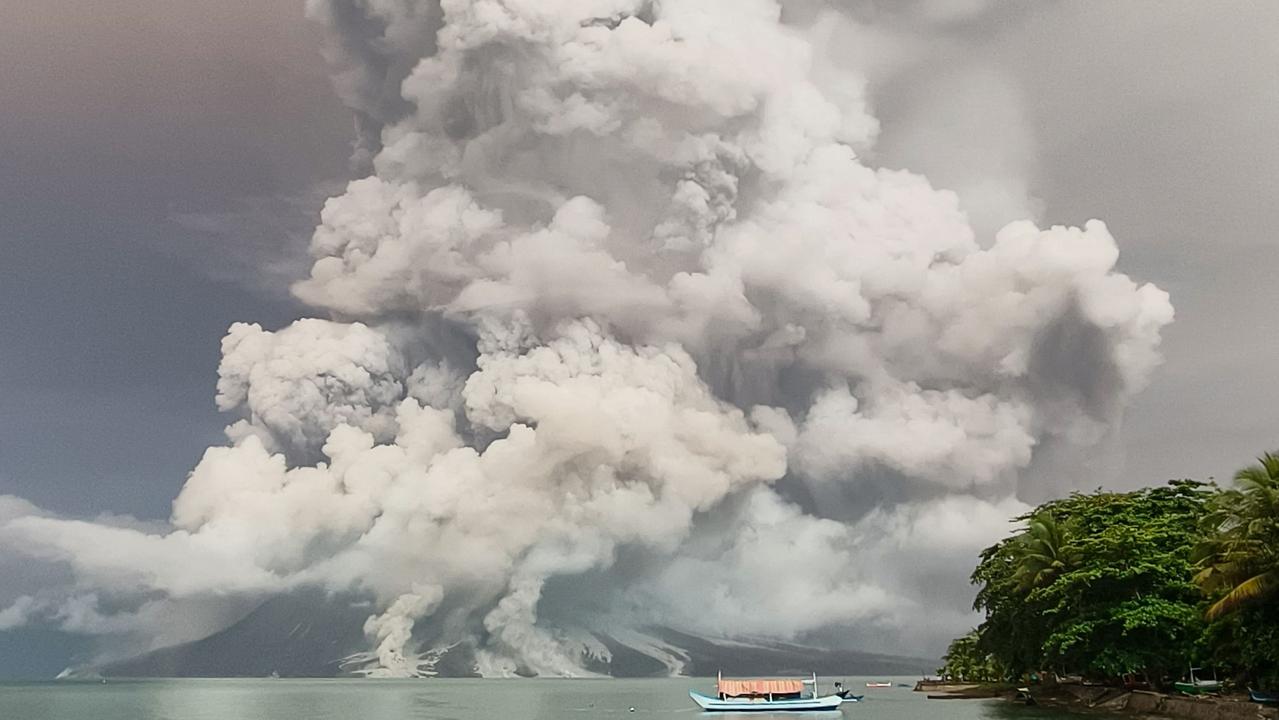
Images showed the volcano on Tuesday sent a molten red column bursting into the sky, a large ash cloud spilling from the crater and burning embers near local houses. It was accompanied by an earthquake.
People in the area should stay alert and wear masks to avoid exposure to volcanic ash.
The national disaster agency BNPB estimated 11,000 to 12,000 people had to be relocated, spokesman Abdul Muhari told a press conference.
He said military and police were helping to evacuate residents.
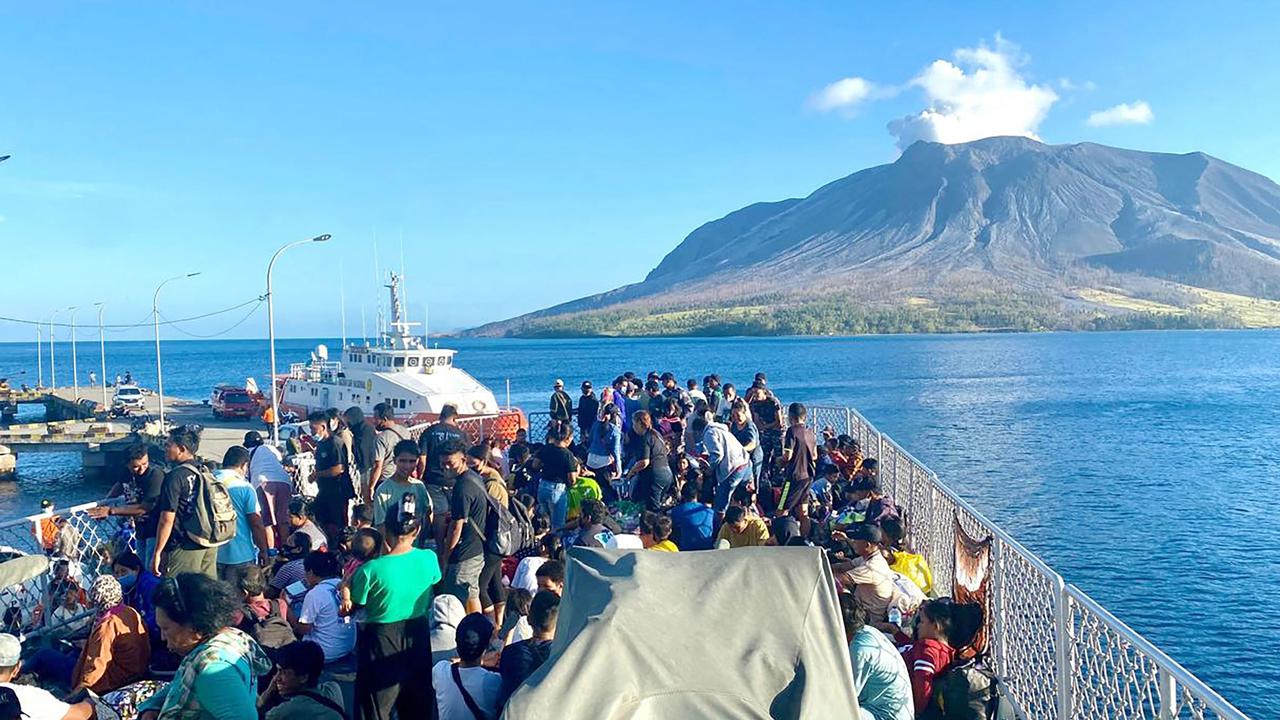
Mount Ruang erupted more than half a dozen times in April and the more than 800 people who live on Ruang island had already been evacuated that month.
Some had returned to their homes after the emergency response ended on Monday, an AFP journalist said.
It was unclear how many residents had gone back and how many were forced to evacuate once more. But Abdul said those who were previously evacuated from Ruang had been to be taken to provincial capital Manado to await relocation, unable to return to their homes because of the fear of eruptions.
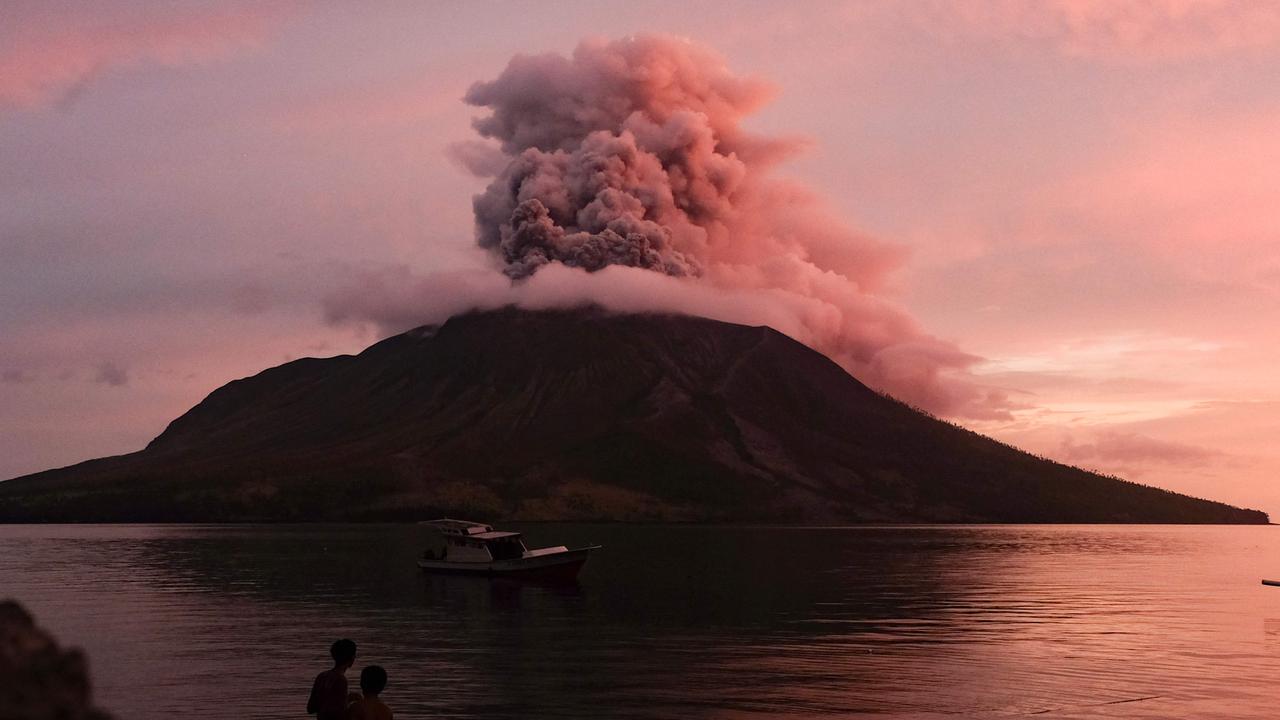
Thousands from neighbouring Tagulandang island north were being moved to Siau island because of the tsunami warning.
“We urge people in Tagulandang island to stay away from coastal areas, to be on alert for the potential of a tsunami to occur,” Abdul said, citing an 1871 wave that killed around 400 people after volcanic debris fell into the sea.
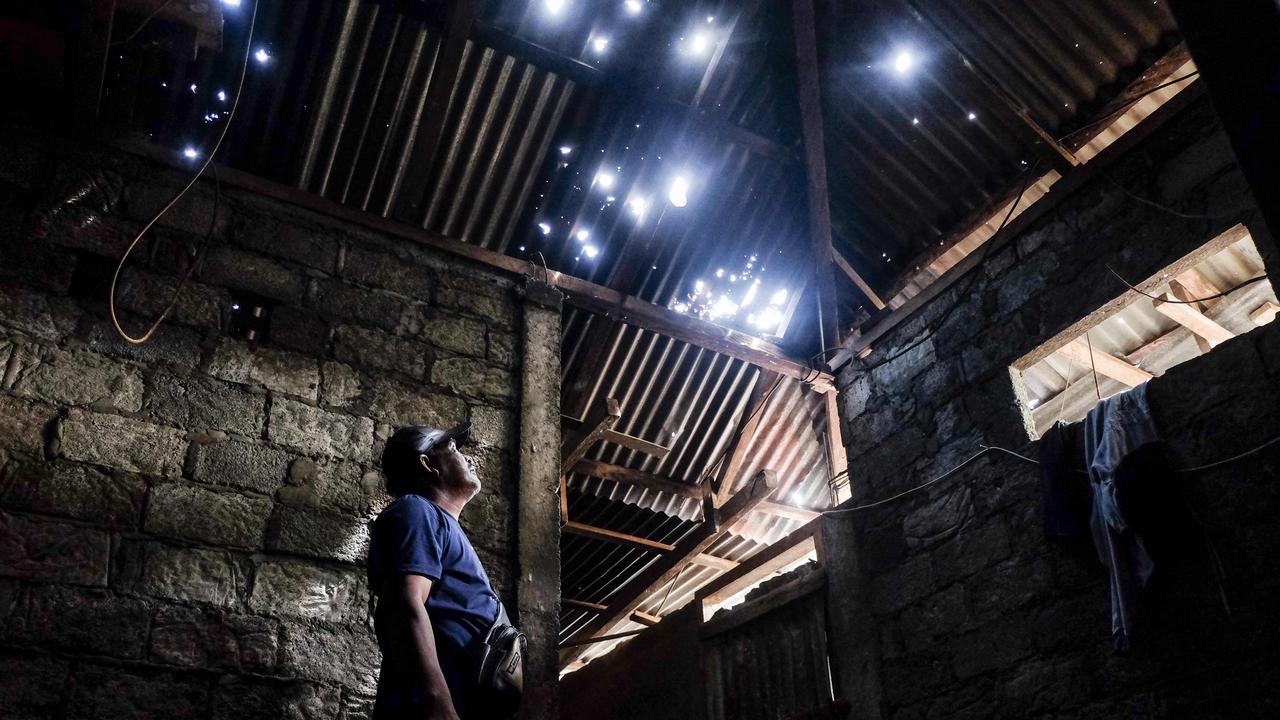
The tsunami fears were also informed by more recent events, AFP reported.
The crater of Mount Anak Krakatoa, between Java and Sumatra islands, also partly collapsed in 2018 when a major eruption sent huge chunks of the volcano sliding into the ocean, triggering a tsunami that killed more than 400 people and injured thousands.
Indonesia experiences frequent seismic and volcanic activity due to its position on the Pacific “Ring of Fire”.
More Coverage

The Australian government’s Smartraveller website warns “many of Indonesia’s volcanoes are active and can erupt without warning”.
It advises Aussie travellers to adhere to exclusion zones around volcanoes, which can change at short notice, and follow the advice of local authorities.
– with AFP
Add your comment to this story
To join the conversation, please log in. Don't have an account? Register
Join the conversation, you are commenting as Logout
Aussies planning on visiting a major European city will have to pay a fee or cop a hefty fine of up to $450 in a move that’s sparked outrage.
A photo of three young men standing on a rock in the Queensland bush has sparked furious controversy online.
Travellers are being warned to expect major disruptions at French airports, with an anticipated strike threatening to cause chaos.

Plan & Book
Flight information, infinity mileagelands, business travel, please select your country / region of residence, travel news, advisory on eva air flights affected by runway closure at san francisco international airport.
Apr 30, 2024
Due to partial runway closures at San Francisco International Airport from April 30th to May 3rd, EVA Air flights departing from San Francisco International Airport will be affected. The flight numbers and schedules are changed as follows.
- 2024/04/30 Flight Status
- 2024/05/01 Flight Status
- 2024/05/02 Flight Status
- 2024/05/03 Flight Status
EVA Air advises that passengers check the Flight status for the latest information before heading to the airport.
This site uses cookies.
EVA Air's websites use cookies and similar technologies for the best experience on our website, including personalized services, ads and traffic analysis. These cookies include targeted media cookies and advanced analytics cookies. By clicking on "Accept", you agree to the use of cookies. You can change your cookie preference by clicking on the "Change your cookie settings" button.
For more detailed information on the cookies we use, please check our Cookie Policy .
Essential cookies are essential for the operation of our website that will let you move around our website freely and use functions on the websites. These cookies don’t gather your personal identifiable information that could be used for marketing and are not disclosed to any third party.

- Countries & Regions
- International Organisations (IOs)
- Climate Change
- Counter Terrorism
- Disarmament
- Cybersecurity
- International Peacekeeping
- Singapore's Voluntary National Review
- Small States
- Sustainable Development
- Pedra Branca
- Singapore Universal Periodic Review
- Water Agreements
- Find A Singapore Overseas Mission
- Foreign Representatives To Singapore
- COVID-19 Information
- Travel Tips
- Visa Information
- I Need Help Overseas
- Passport Matters
- Legalisation of Documents
- Travel Advisories and Notices
- Useful links
- Press Statements, Transcripts & Photos
- Announcements and Highlights
- Experience Singapore
- Foreign Service Officer (Functional and Corporate)
- Foreign Service Officer (Political and Economic)
- Foreign Service Administration Specialist
- Job Opportunities
- Pre-University
- Undergraduate
- Foreign Service Scholarships
- Recruitment
- Scholarship
- Reach.gov.sg
Singapore-Indonesia Leaders' Retreat, 29 April 2024
29 april 2024.
Prime Minister Lee Hsien Loong met Indonesian President Joko Widodo in Bogor, Indonesia on 29 April 2024 for the Singapore-Indonesia Leaders’ Retreat. This was Prime Minister Lee’s seventh Leaders’ Retreat with President Joko Widodo, and the final between the two Leaders. The Leaders’ Retreat has been convened annually since 2016, with the exception of 2020 and 2021 due to the COVID-19 pandemic. This commitment to regular exchanges between the Leaders demonstrates the high-level attention paid to bilateral ties by both sides and the substantive cooperation that Singapore and Indonesia have developed over the years.
The Leaders welcomed the entry into force of the agreements under the Expanded Framework on 21 March 2024 as a historic milestone in bilateral relations. The Agreement on the Realignment of the Boundary between the Jakarta Flight Information Region (FIR) and the Singapore FIR, the Treaty for the Extradition of Fugitives, and the Defence Cooperation Agreement have resolved three long-standing issues. The Leaders agreed that the successful conclusion and entry into force of these agreements demonstrated that Singapore and Indonesia could address complicated issues in a pragmatic and mutually-beneficial manner when we commit to working together in a spirit of friendship and openness. The Leaders reaffirmed their commitment to ensuring the smooth implementation of all three agreements.
Prime Minister Lee and President Joko Widodo welcomed the significant progress in bilateral cooperation over the past decade. The economic relationship is robust, with investments from Singapore to Indonesia amounting to more than S$74 billion cumulatively. The Leaders welcomed the 5 th extension of the Bilateral Financing Agreement between the Monetary Authority of Singapore and Bank Indonesia, which reinforces the ongoing financial cooperation in preserving monetary and financial stability in both countries amid global macroeconomic uncertainties. Prime Minister Lee and President Joko Widodo also witnessed the signing of the Joint Update on Defence Cooperation (JUDC) between Minister for Defence Dr Ng Eng Hen and Indonesian President-elect and Minister of Defence Prabowo Subianto, which looks back on key interactions in the past year and highlights new and enhanced areas of collaboration for the year ahead.
Prime Minister Lee and President Joko Widodo agreed that the bilateral relationship is on firm footing to embark on pathfinding cooperation in new growth areas. The Leaders recognised the enormous potential of the green economy for both countries . They also reaffirmed the importance of working together to ensure that our societies are prepared and remain resilient to the changes in our physical and global environment s . They witnessed the signing of the MOU on Community Empowerment in Mangrove Ecosystems by Senior Minister and Coordinating Minister for National Security Teo Chee Hean and Indonesian Coordinating Minister for Maritime Affairs and Investments Luhut Pandjaitan. They agreed to sustain the positive momentum in facilitating cross-border electricity trading, including accelerating the development of power interconnectors between Indonesia and Singapore. They also welcomed the good progress in exploring collaboration in carbon capture and storage.
The Leaders discussed the digital economy as another promising area of cooperation and growth for both countries. They welcomed the signing of the MOU on Cooperation on Digital Transformation between Singapore’s Ministry of Communications and Information and Indonesia’s Ministry for Communications and Informatics. The Leaders also announced the launch of the pilot of the Tech:X programme, a bilateral manpower arrangement which will allow young tech professionals from Indonesia and Singapore to pursue short-term working stints and gain valuable exposure in the other country. These initiatives are a positive step towards jointly harnessing the energy and ideas from the human capital in both our countries, and building up a future-ready and forward-looking workforce.
Prime Minister Lee and President Joko Widodo also exchanged views on regional and global developments. They reiterated their commitment to working together, with ASEAN and in other international organisations like the UN, to address shared challenges.
Prime Minister Lee noted that this was his last Leaders’ Retreat with President Joko Widodo, and last overseas visit as Prime Minister. Prime Minister Lee took the opportunity to thank President Joko Widodo for his contributions to the bilateral relationship. Prime Minister Lee welcomed Indonesia’s strong economic trajectory, which has brought stability, progress and optimism to Indonesia and benefited the region. Prime Minister Lee reaffirmed Singapore’s continued support for Indonesia’s growth and prosperity, and commitment to strengthen the interdependence between both countries. Both Leaders agreed that the progress in the bilateral relationship was made possible by the shared commitment to mutual understanding and the building of strong interpersonal relationships at all levels, and expressed confidence that future generations would keep up the good momentum in bilateral cooperation.
. . . . .
MINISTRY OF FOREIGN AFFAIRS
29 APRIL 2024
The Ministry of Foreign Affairs is a ministry of the Government of Singapore responsible for conducting and managing diplomatic relations between Singapore and other countries and regions.
Travel Page

COMMENTS
Embassy of the Republic of Singapore in Jakarta. Tel: +62 (21) 2995 0400 during office hours, or the 24-hour hotline +62 811 863 348 for emergencies outside of office hours. Ministry of Foreign Affairs Duty Office (24-hours) Tel: +65 6379 8800/6379 8855. Travel Notice: Mount Semeru's Eruption.
Read the entire Travel Advisory. Do Not travel to: The provinces of Central Papua (Papua Tengah) and Highland Papua (Papua Pegunungan) due to civil unrest. Terrorists continue plotting possible attacks in Indonesia. Terrorists may attack with little or no warning, targeting police stations, places of worship, hotels, bars, nightclubs, markets ...
30 November 2023. New International Travel Regulations to Enter Indonesia as of 1 February 2022. As an immediate follow-up to prevent the spread of SARS-COV-2 B.1.1.529 from South Africa and some other countries in the world, COVID-19 Task Force issued the Circular of the Head of the COVID-19 Handling Task Force Number 4 of 2022 regarding International Travel Health Protocol during the Corona ...
Advisory on Coronavirus for Travelers to Indonesia. Tue, 17 Mar 2020. Due to the recent concern regarding the outbreak of COVID-19 in Indonesia, the Government of the Republic of Indonesia would be implementing the following measures in order to minimize the risk of the pandemic from spreading even further: 1| The Government continues to ...
The Multi-Ministry Taskforce has been closely monitoring the global COVID-19 situation and regularly reviews Singapore's border measures to manage the risk of importation from travellers and onward local transmission, taking into account the current situation in their source countries/ regions. Tightening of Entry Approvals for Travellers and ...
Get travel advisories for your destination country before you fly with Singapore Airlines. Our updates include safety and security information to help you make informed travel decisions. ... Indonesia - Bahasa; Japan - English; ... If the information differs from our travel advisory, do adhere to the official guidance from the authorities, as ...
Travel restrictions vary from time to time. If you plan to travel soon, please check the travel advisories on the International Air Transport Association (IATA) website or relevant local authorities for the latest passport, visa and health requirements. If you have any connecting flights, and your transit city and destination have different ...
Destination List: Cambodia, Indonesia, Laos, Malaysia, Singapore, Sri Lanka; ⇧ Top. Hide ... If your travel plans in Indonesia include outdoor activities, take these steps to stay safe and healthy during your trip. ... Monitor travel advisories and alerts and read travel tips from the US Department of State.
Quick Facts. Six months beyond arrival date. Indonesia does not accept the 12-page U.S. emergency passport for entry into Indonesia. Two blank visa pages required for entry stamp. Yes, Visa or Visa on Arrival. None. 100,000,000 Indonesian rupia (approx. $7,000 USD)
The Singaporean government regularly updates its general travel advisory for all destinations, including Indonesia. This advisory will highlight any significant risks, safety precautions, and recommended actions for travelers. Health and Safety Precautions. One of the key aspects of any travel advisory is the recommended health and safety ...
Orang dengan gejala gangguan pernapasan sedang bisa karantina di rumah hingga gejala mereda. Jika ada kebutuhan untuk keluar ruangan Ketika sedang memiliki gejala, atau tidak begejala namun hasil tes positif akan COVID-19, silakan bertanggung jawab akan lingkungan sekitar dengan melakukan beberapa hal berikut. Berinteraksi seminimal mungkin.
Saran perjalanan. Pembatasan perjalanan bervariasi dari waktu ke waktu. Jika Anda berencana untuk melakukan perjalanan dalam waktu dekat, lihatlah saran perjalanan di situs web International Air Transport Association (IATA) atau otoritas setempat yang terkait untuk persyaratan paspor, visa, dan kesehatan terkini. Jika Anda memiliki penerbangan ...
New Zealand: +62-21-299-55800; for after-hours or consulate contacts, see the related NZ diplomatic web page. Canada: + 62-21-2550-7800; for consular contacts, see the Canada Travel Destinations page. United Kingdom: +62 (21) 2356 5200 for urgent help from the U.K.; for more, see the UK help and services in Indonesia page.
Reissued with obsolete COVID-19 page links removed.. Exercise normal precautions in Singapore. Read the country information page for additional information on travel to Singapore.. If you decide to travel to Singapore: Enroll in the Smart Traveler Enrollment Program (STEP) to receive Alerts and make it easier to locate you in an emergency.; Follow the Department of State on Facebook and Twitter.
Reduce your risk of colds, the flu and other illnesses by: washing your hands often. avoiding or limiting the amount of time spent in closed spaces, crowded places, or at large-scale events (concerts, sporting events, rallies) avoiding close physical contact with people who may be showing symptoms of illness.
SINGAPORE: Minister for Foreign Affairs Vivian Balakrishnan will make a working visit to Jakarta from Apr 23 to Apr 26, said Singapore's Ministry of Foreign Affairs (MFA) on Monday (Apr 22).
Still current at: 29 April 2024 Updated: 23 April 2024 Latest update: Information on having 2 blank pages in your passport for entry into Indonesia ('Entry requirements' page).
between Indonesia's Riau Islands and Singapore; Mariners should take appropriate precautions. Live piracy report - International Maritime Bureau. ... The two levels below are official Government of Canada Travel Advisories and are issued when the safety and security of Canadians travelling or living in the country or region may be at risk ...
Indonesia Travel Advisory : Level 2: Exercise Increased Caution: July 24, 2023: Iran Travel Advisory : ... (Democratic People's Republic of Korea) Travel Advisory: Level 4: Do Not Travel: July 24, 2023: South Korea Travel Advisory: ... Singapore Travel Advisory: Level 1: Exercise Normal Precautions: July 24, 2023:
Travel Warnings Fury after major city charges entry fee. Aussies planning on visiting a major European city will have to pay a fee or cop a hefty fine of up to $450 in a move that's sparked outrage.
Early cyclone warnings helped save lives in India. ... stratovolcano on Ruang Island in Indonesia's North Sulawesi ... Rendering of the Equatic 3,650tpa CDR plant under construction in Singapore.
Travel News. Advisory on EVA Air flights affected by runway closure at San Francisco International Airport. Apr 30, 2024 . Due to partial runway closures at San Francisco International Airport from April 30th to May 3rd, EVA Air flights departing from San Francisco International Airport will be affected. The flight numbers and schedules are ...
Prime Minister Lee welcomed Indonesia's strong economic trajectory, which has brought stability, progress and optimism to Indonesia and benefited the region. Prime Minister Lee reaffirmed Singapore's continued support for Indonesia's growth and prosperity, and commitment to strengthen the interdependence between both countries.